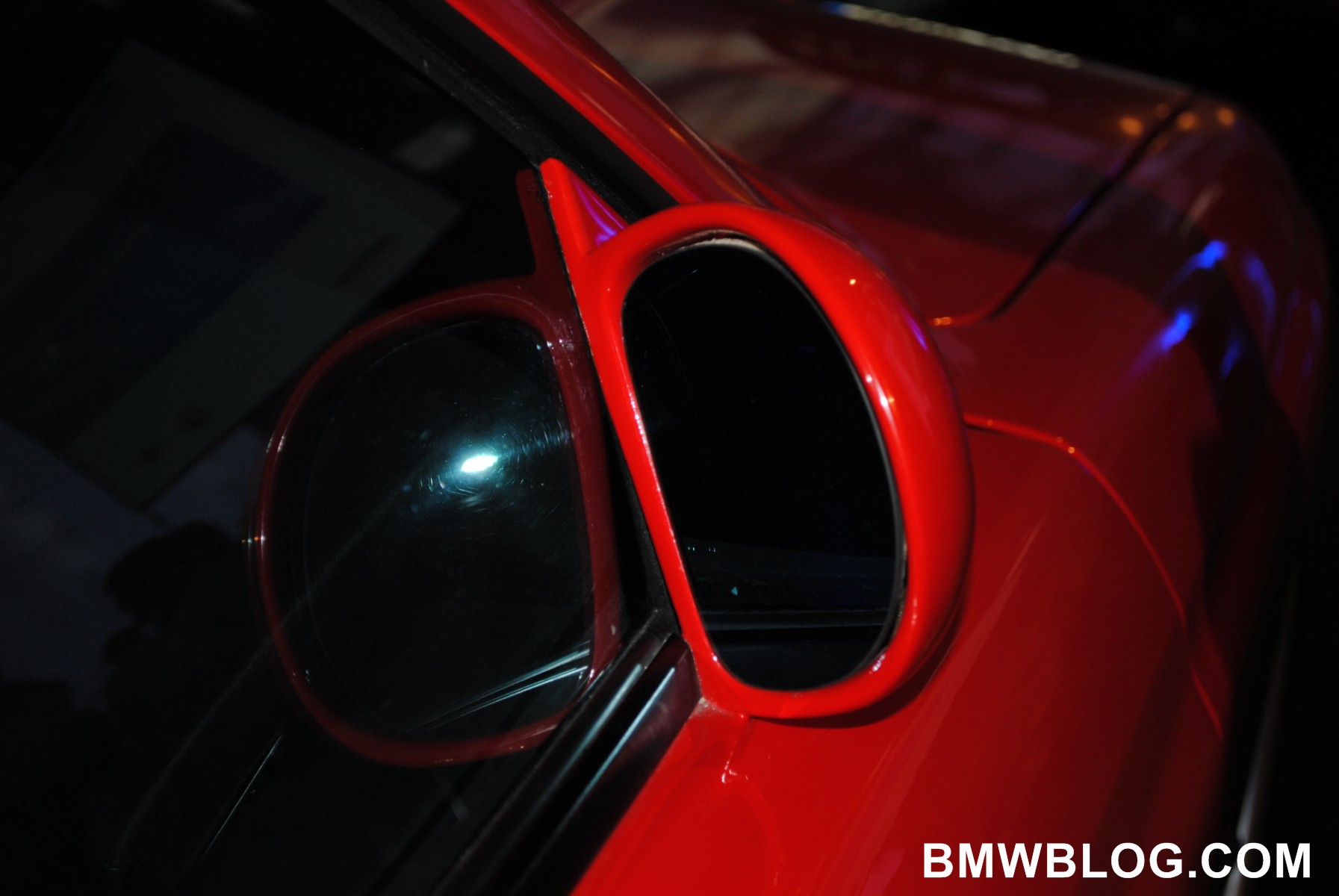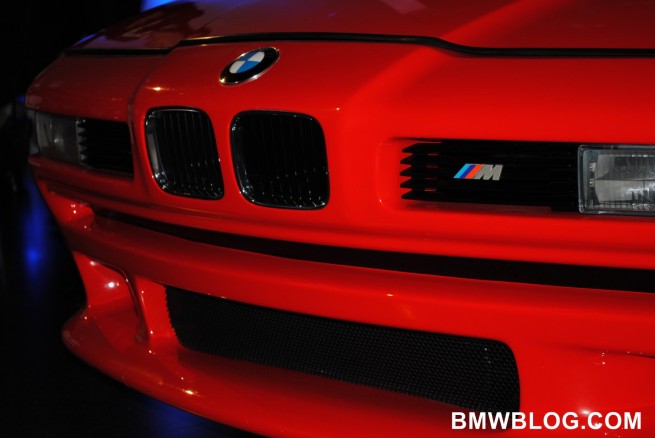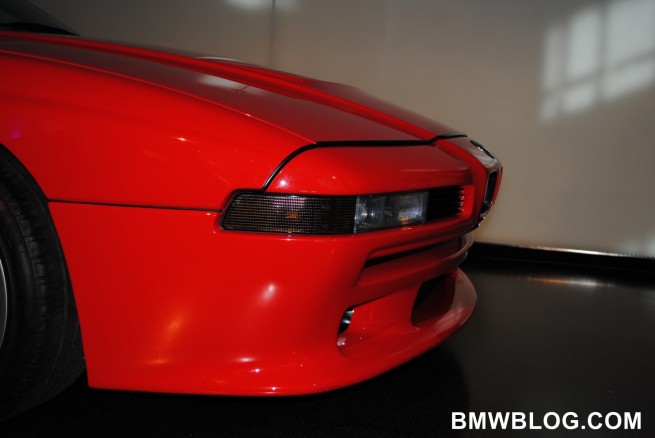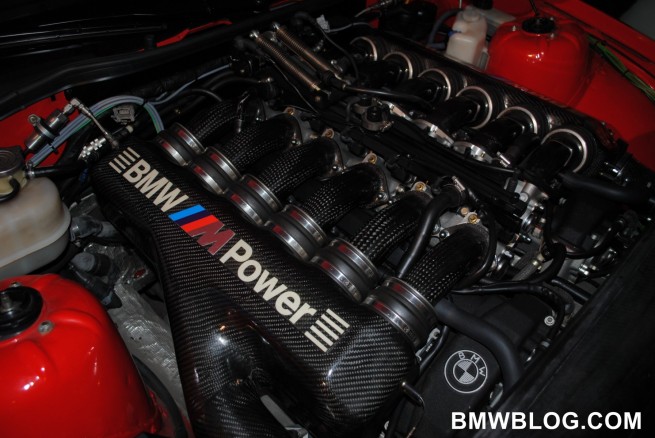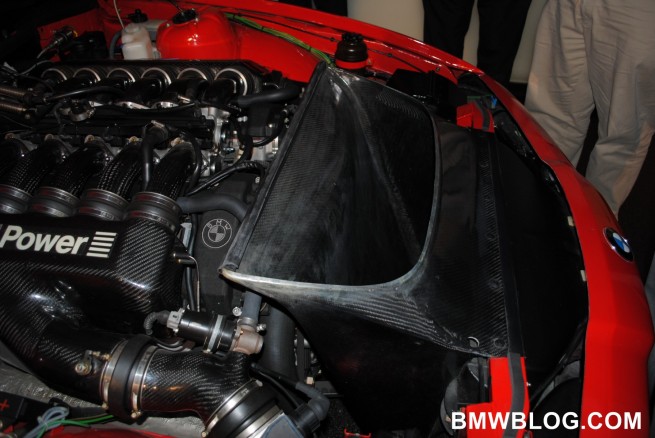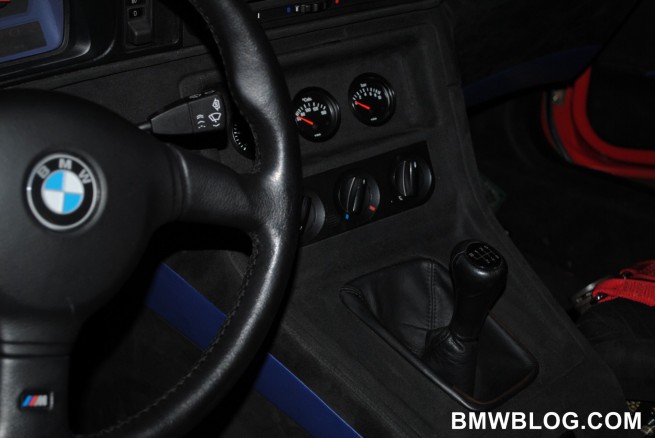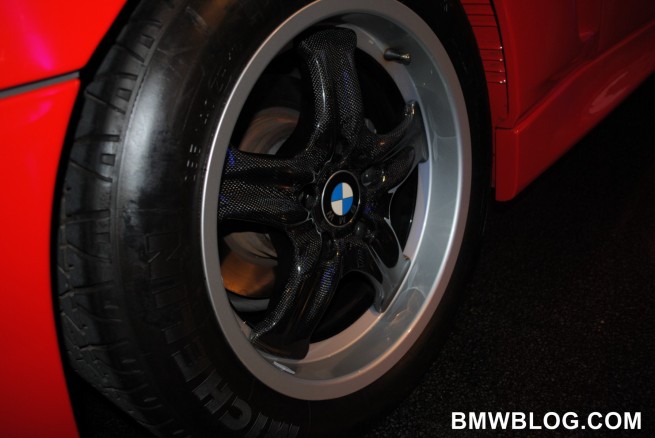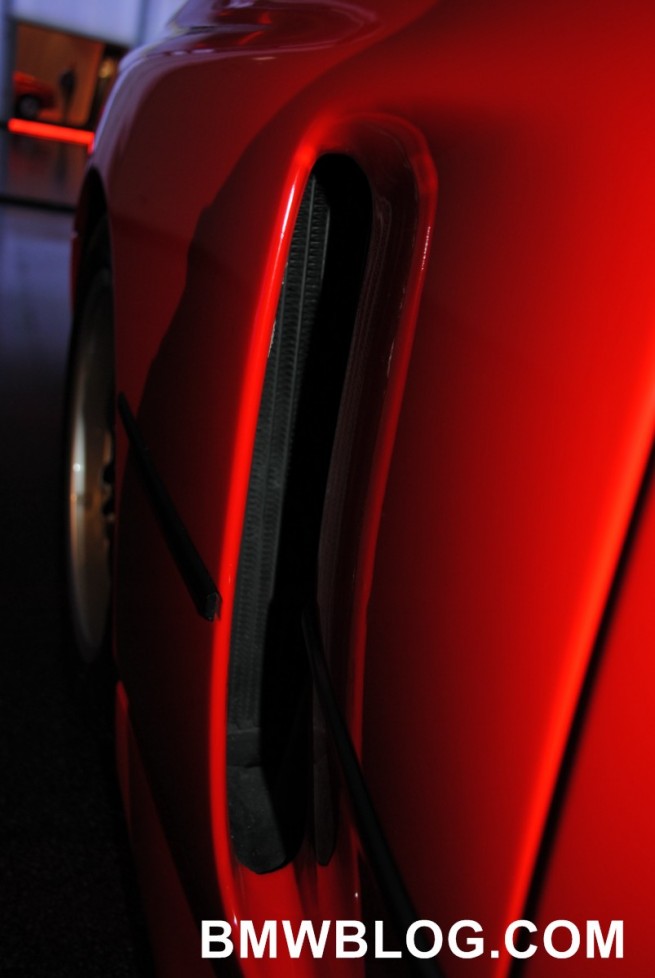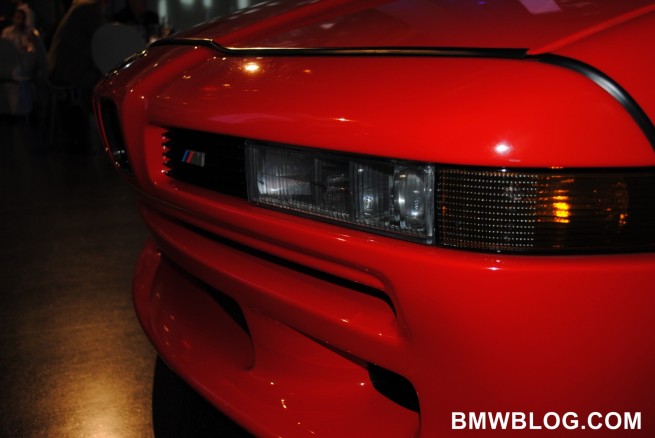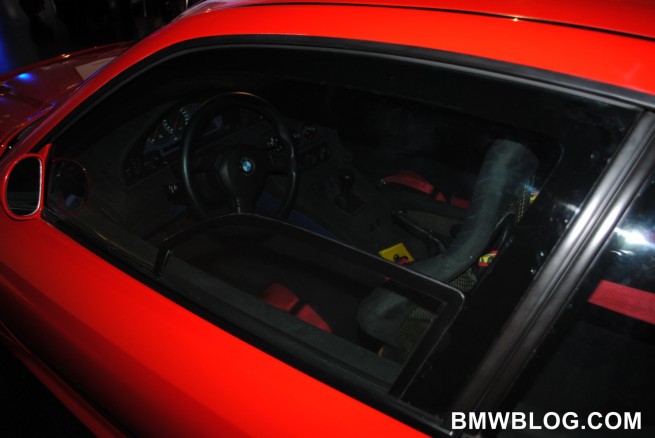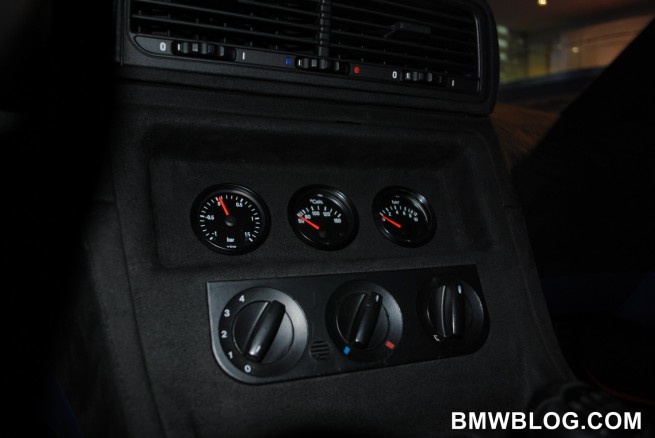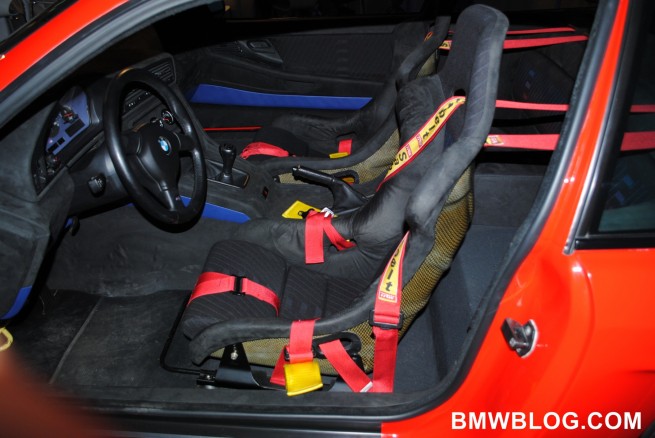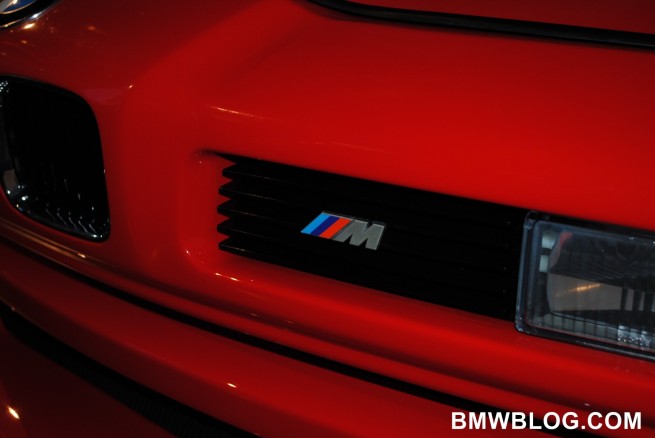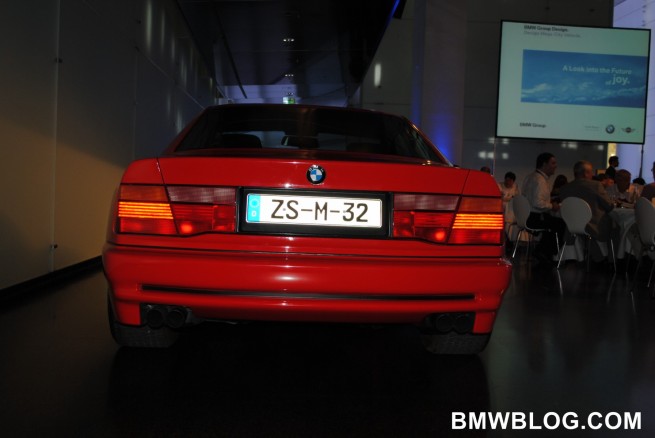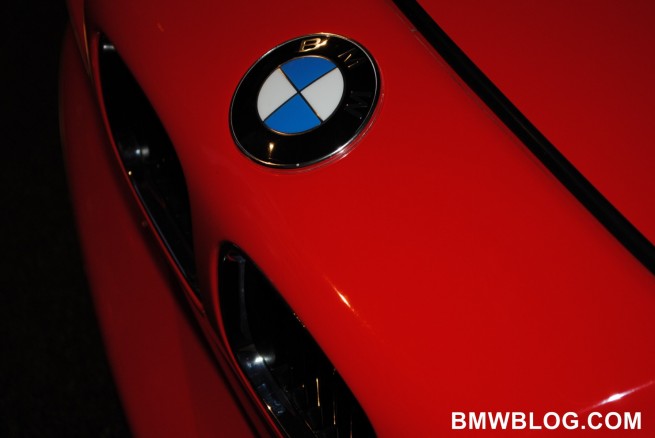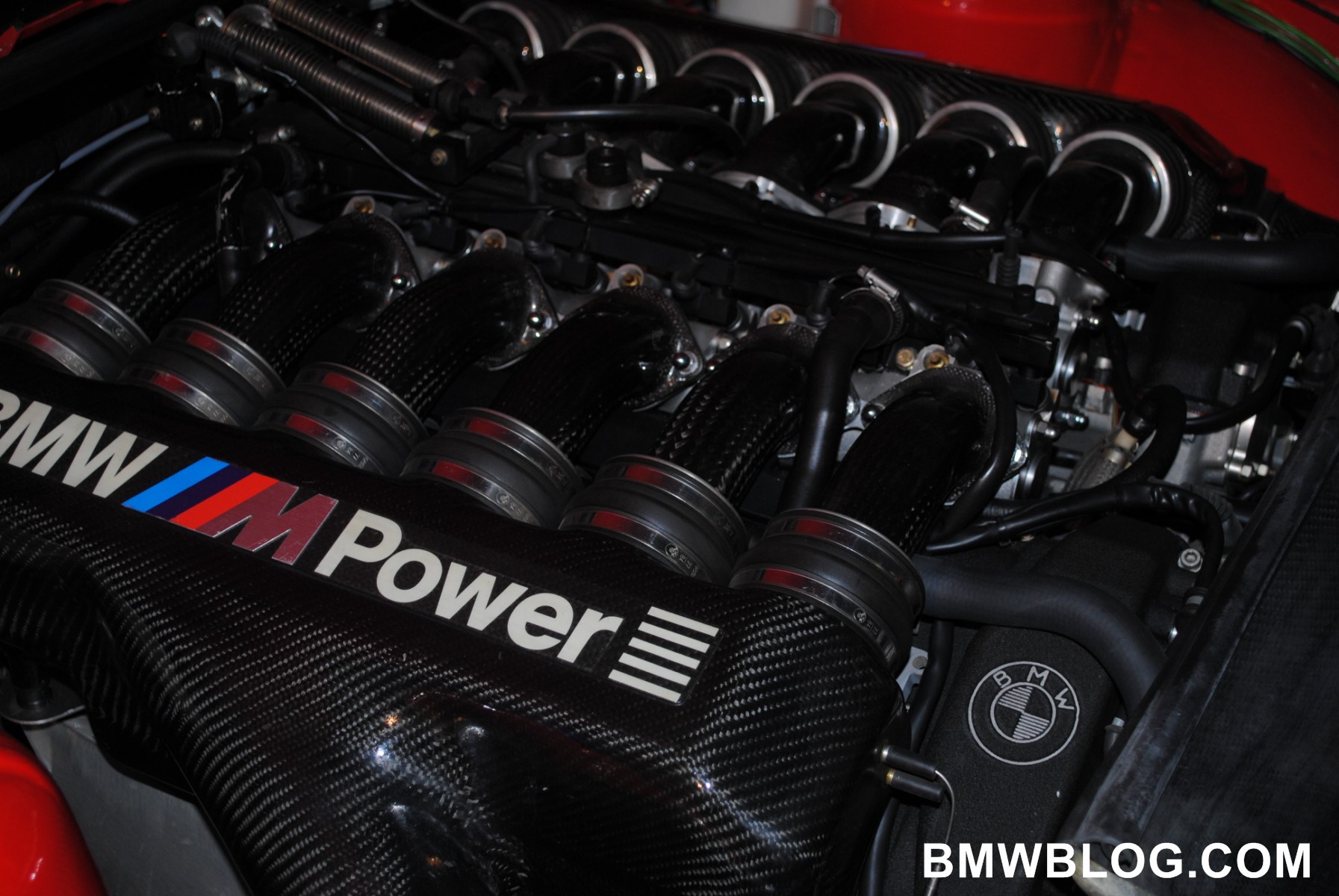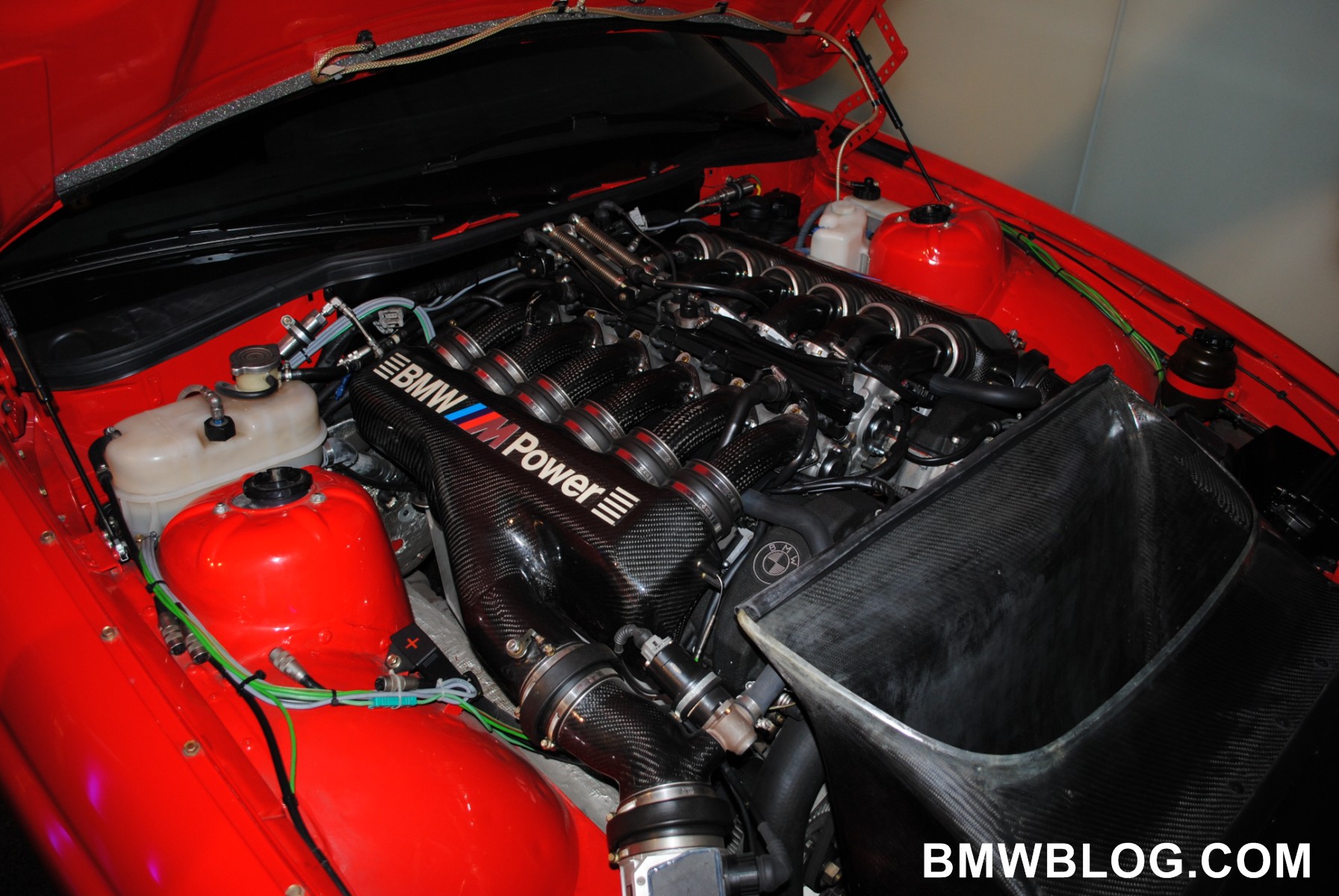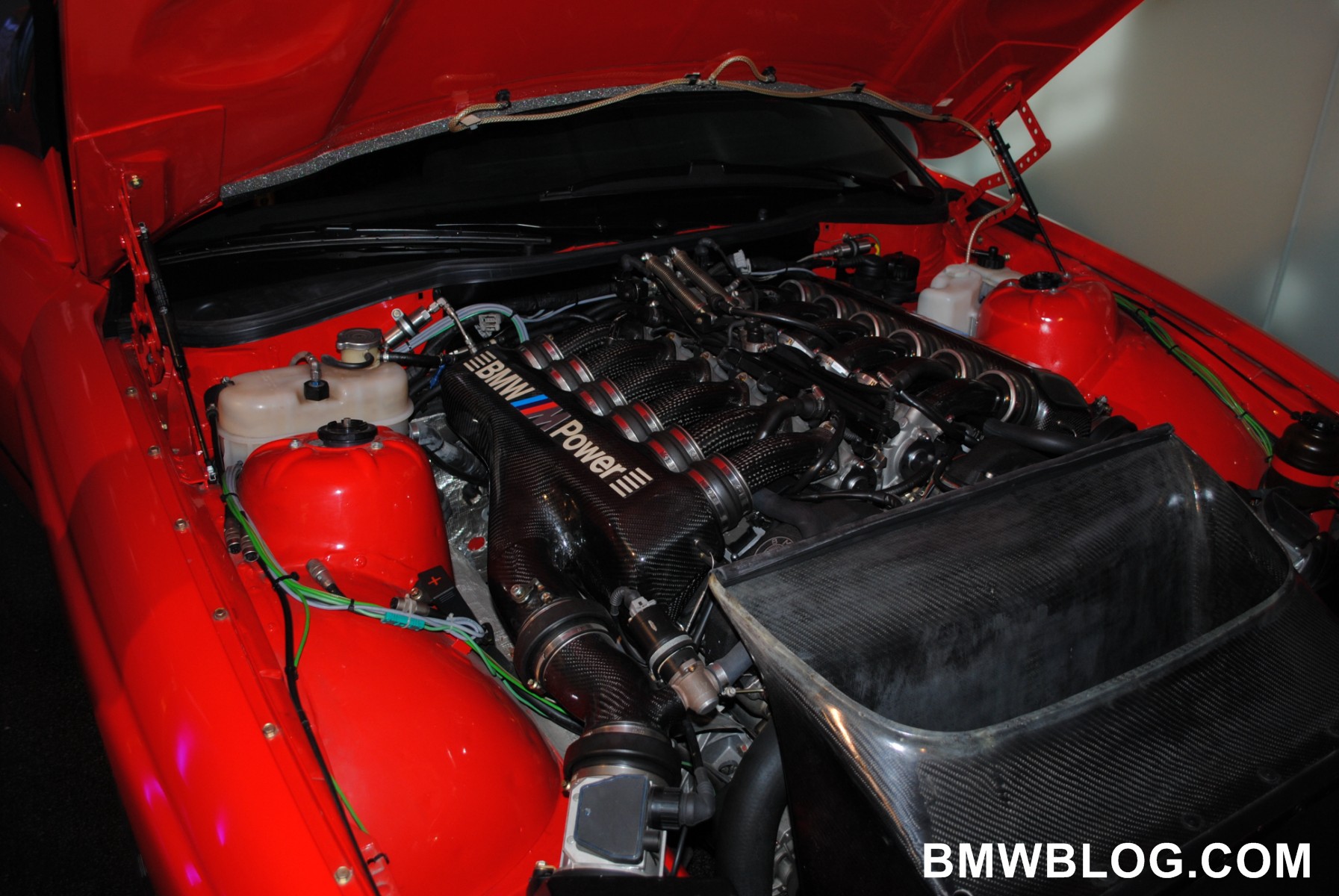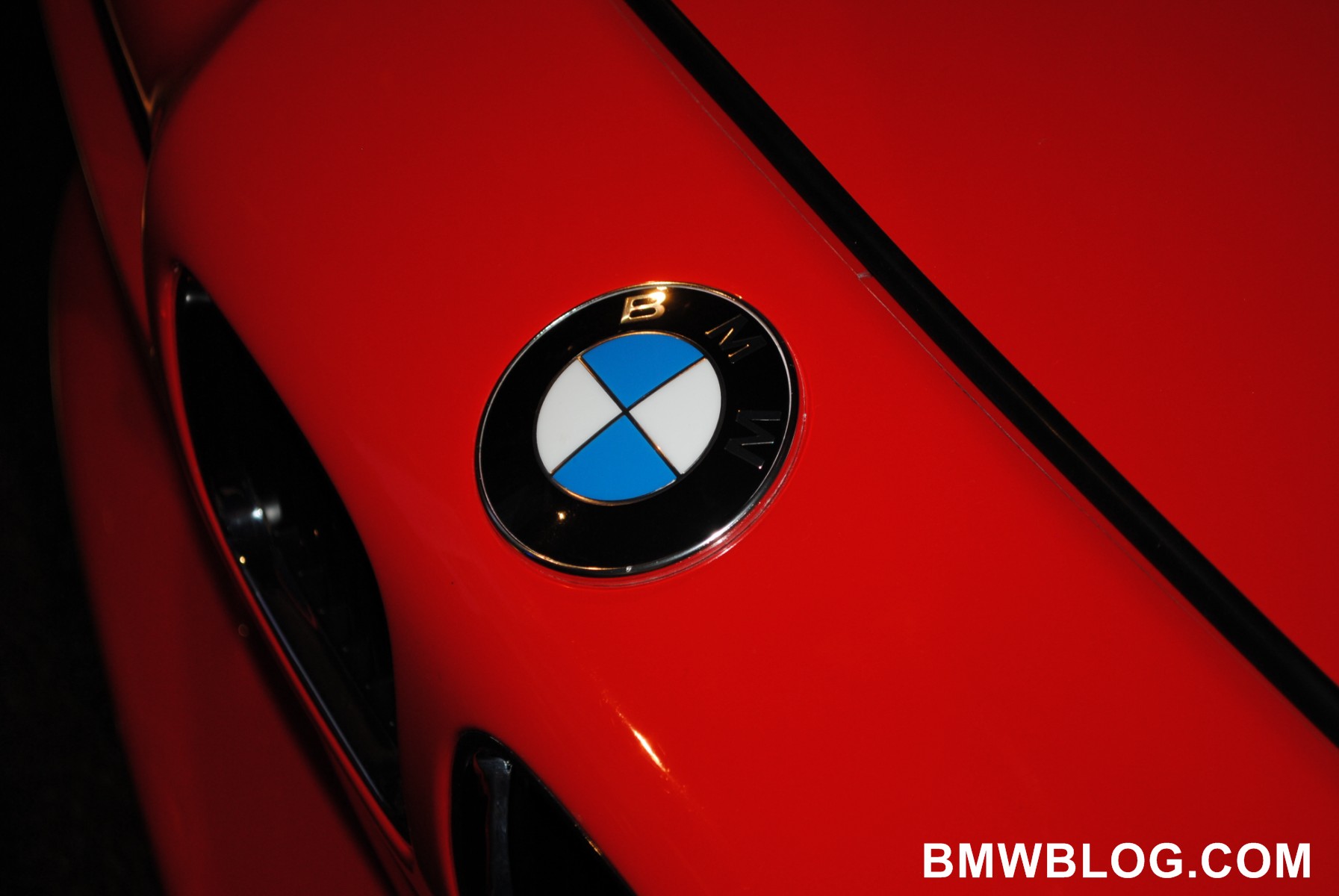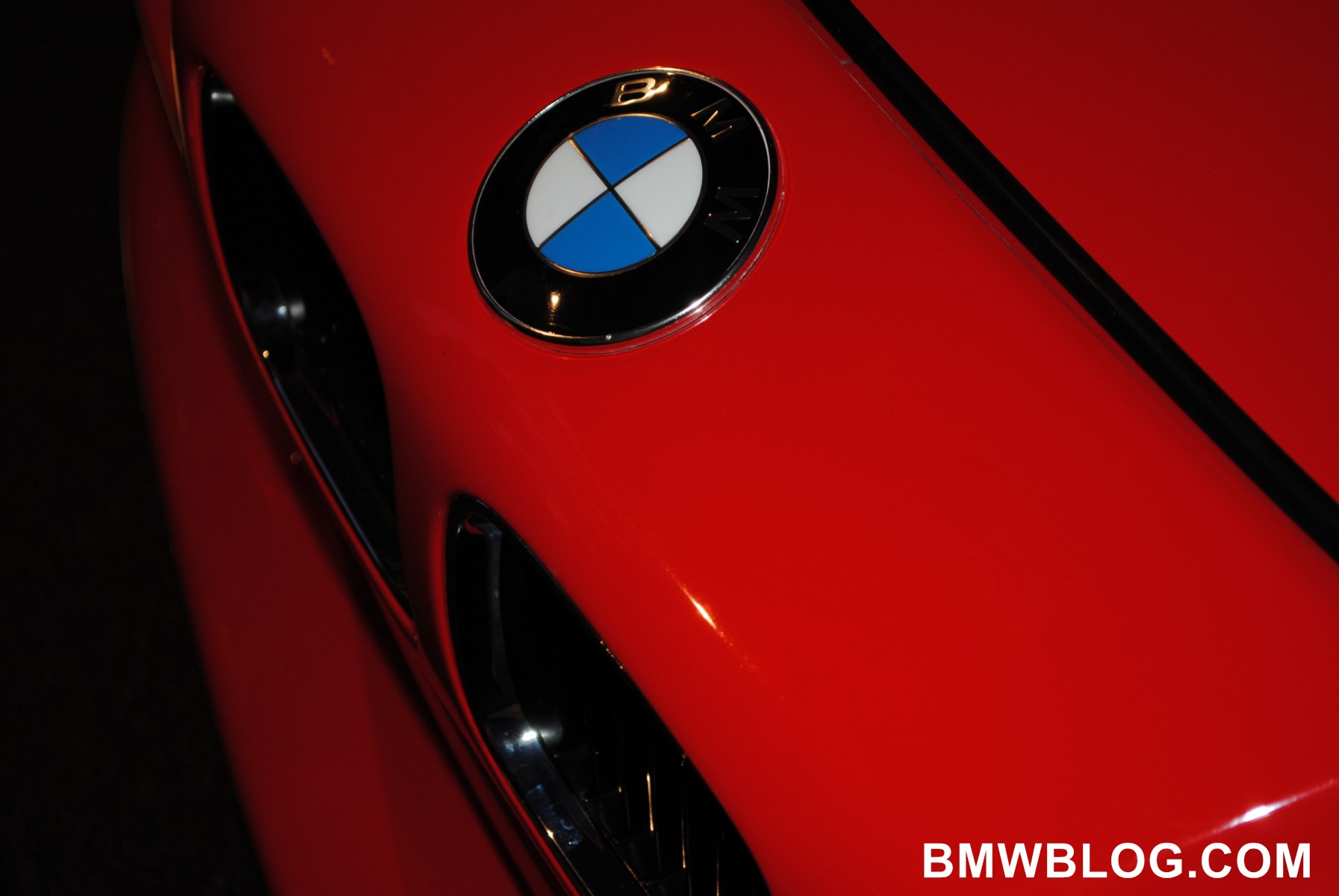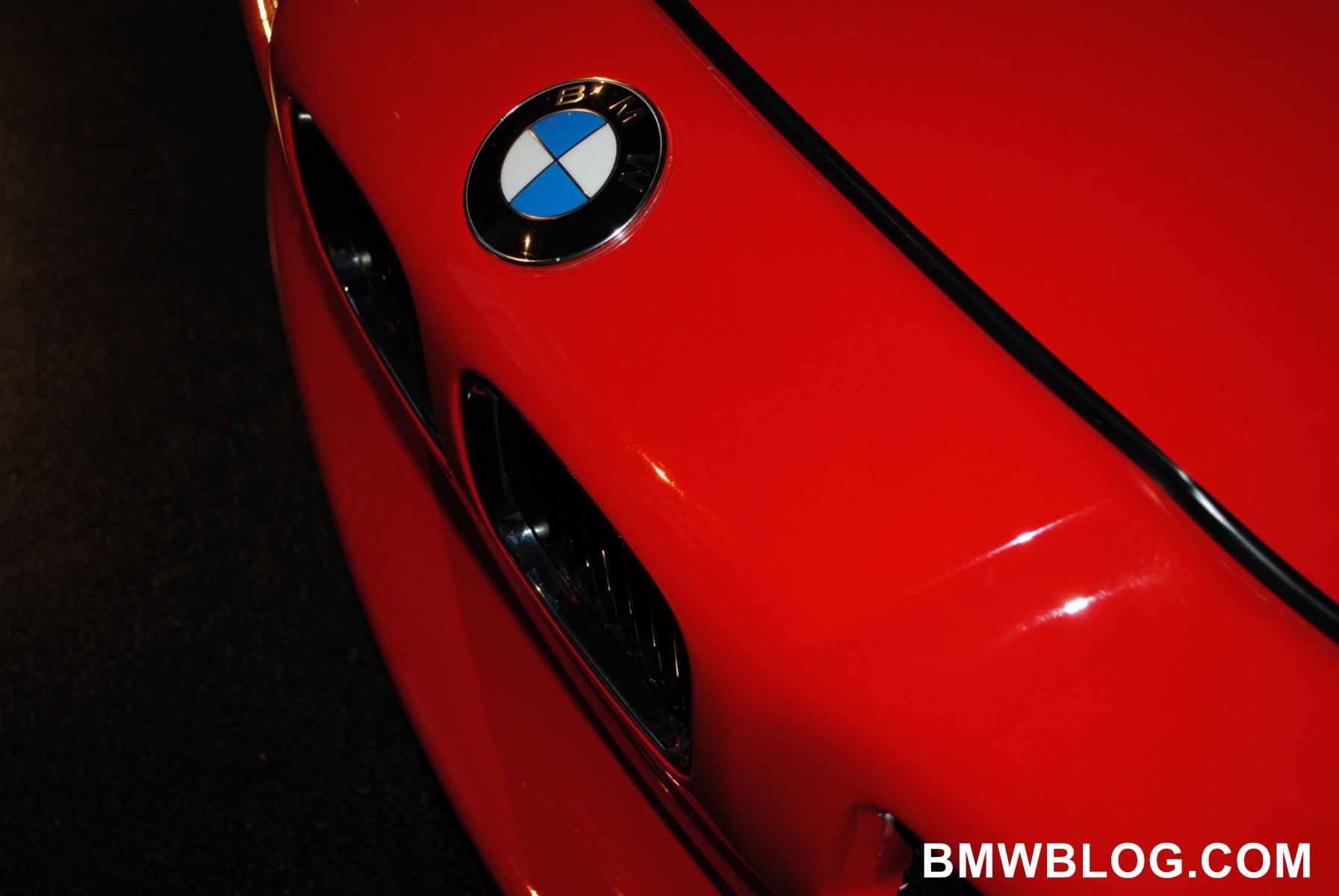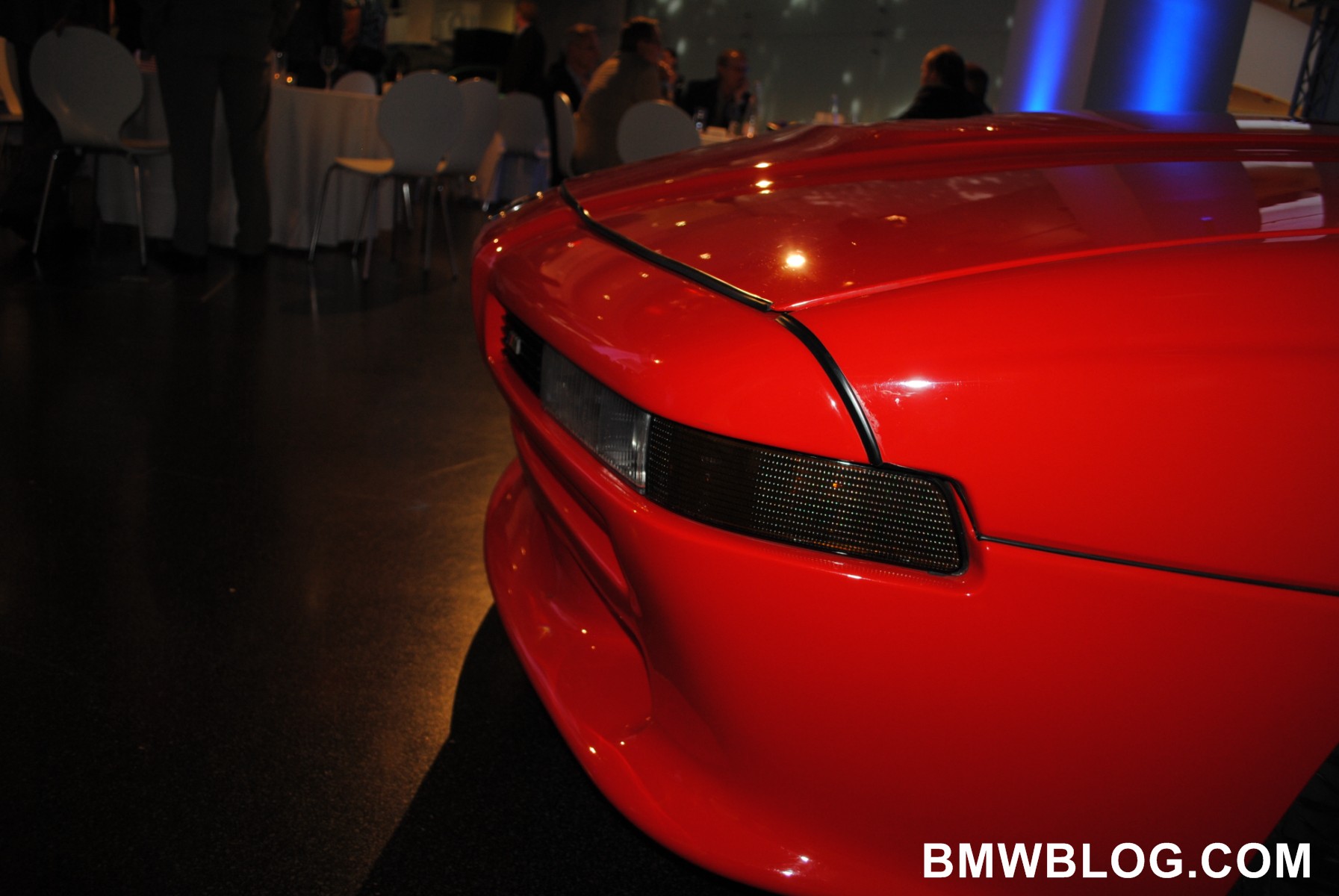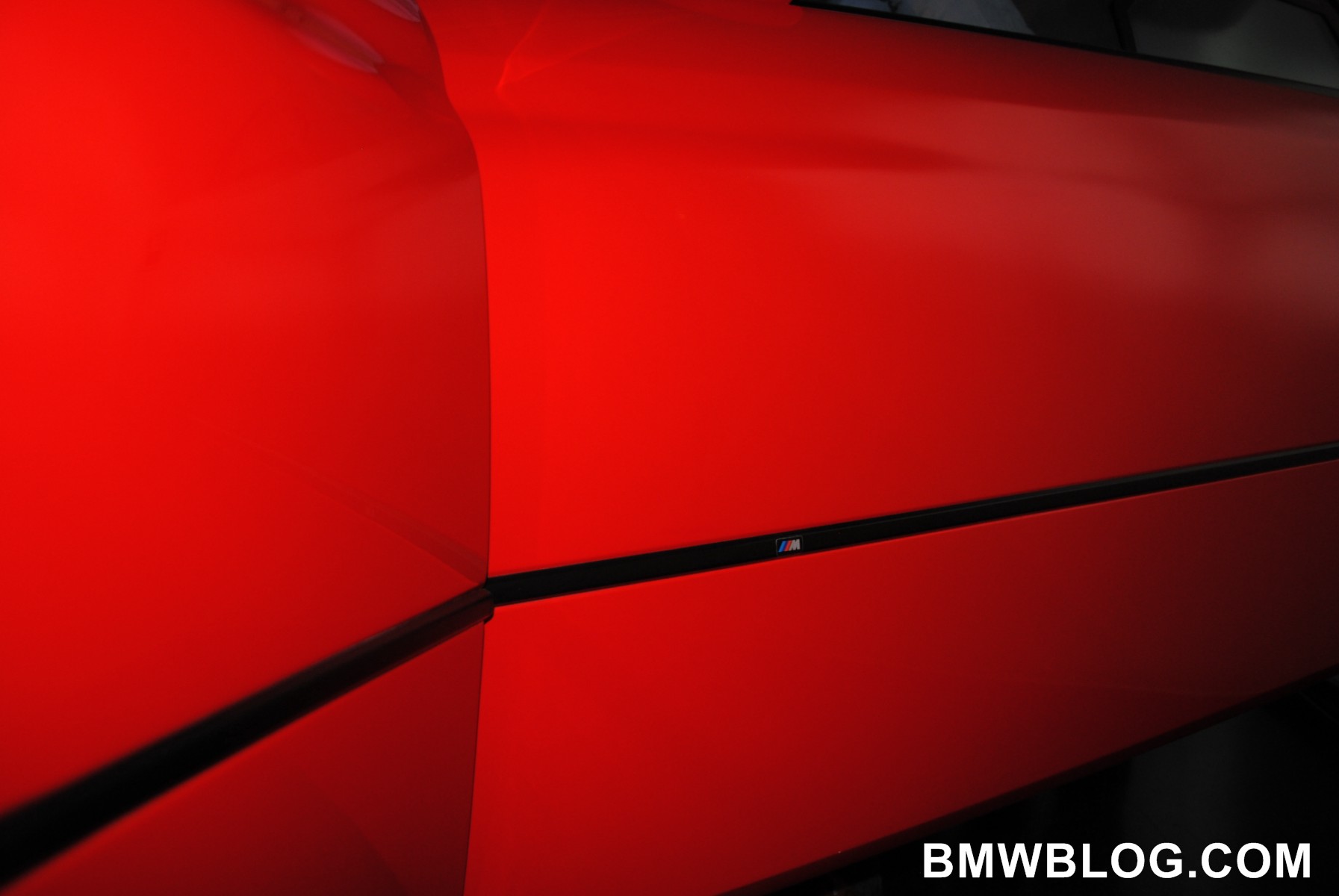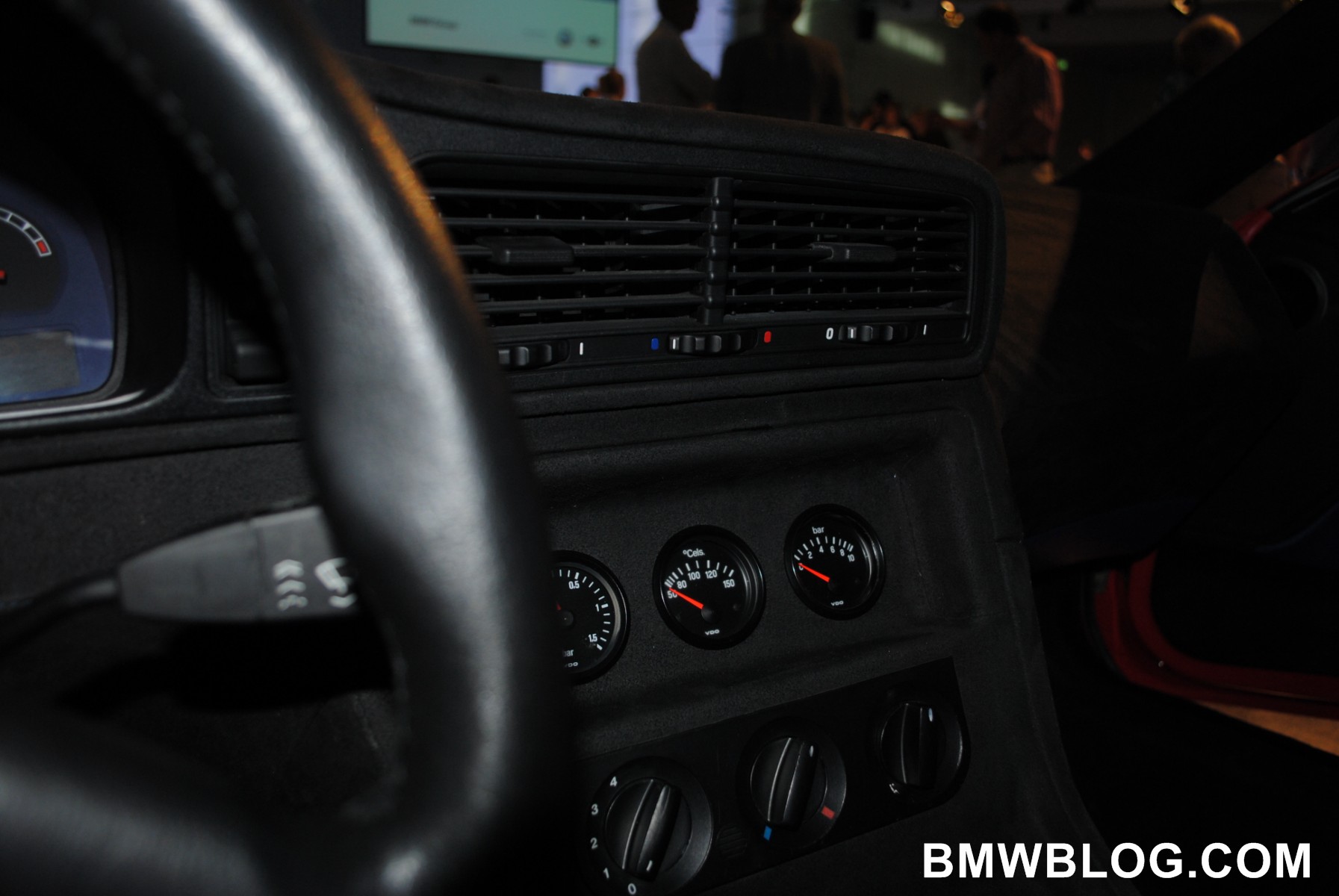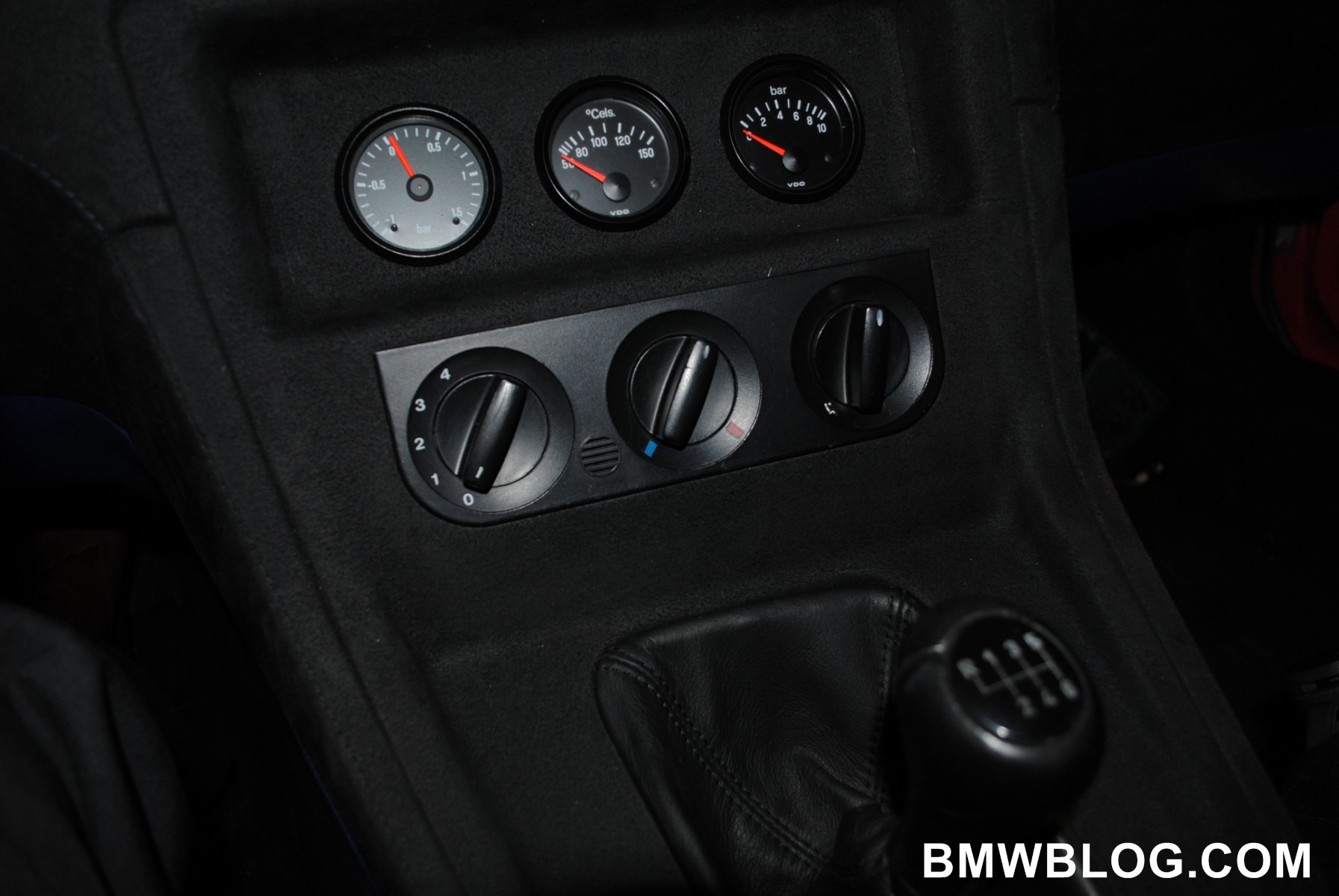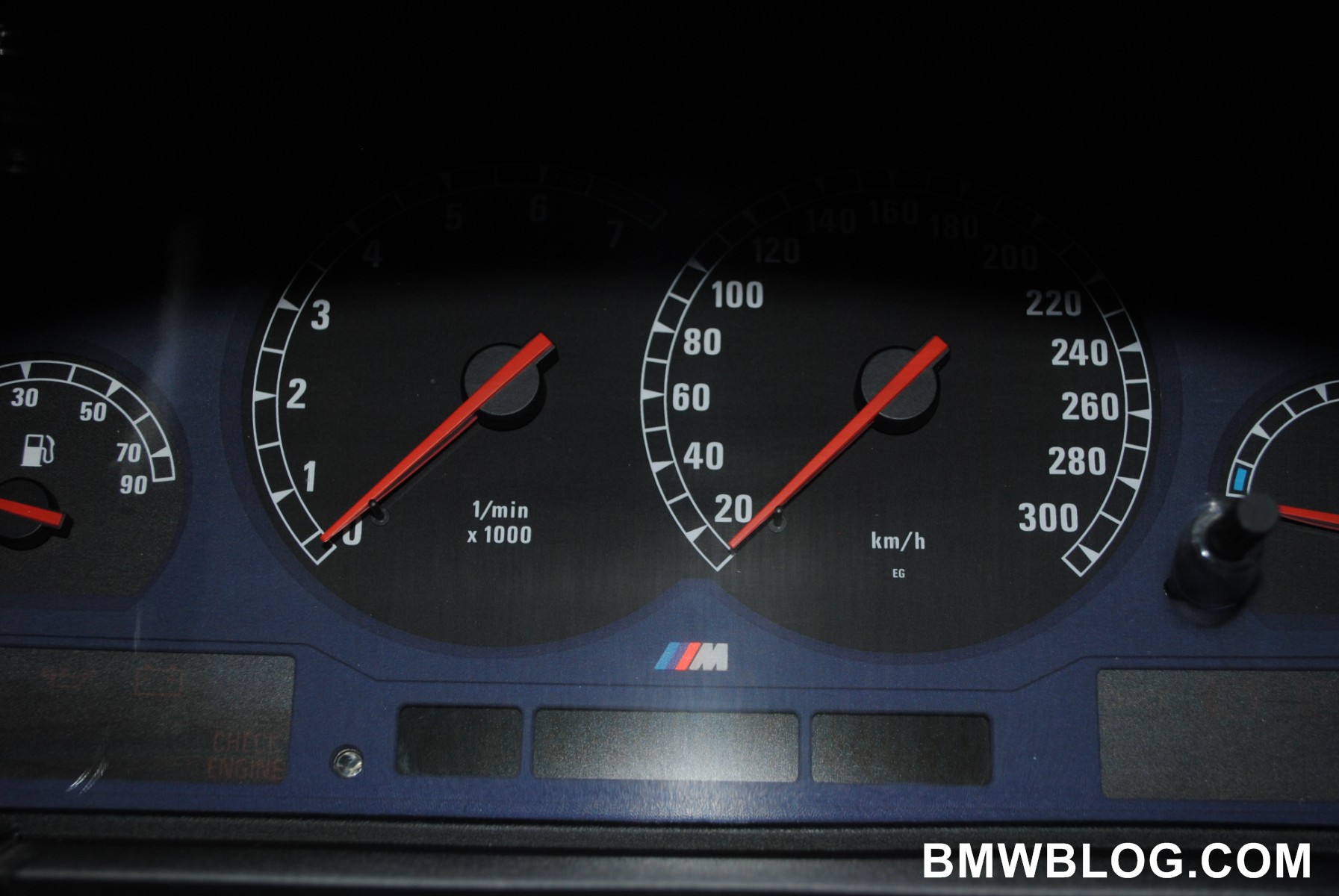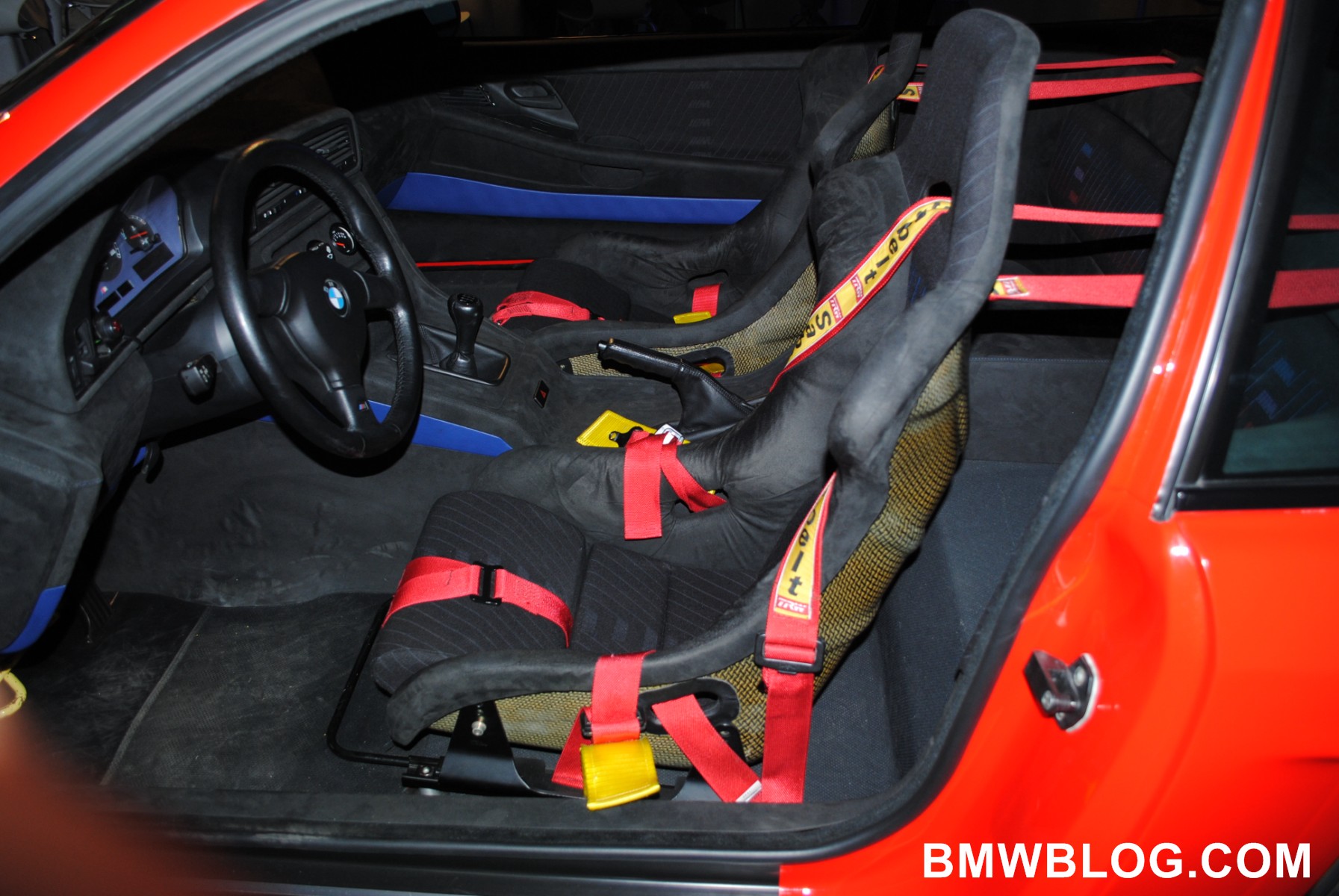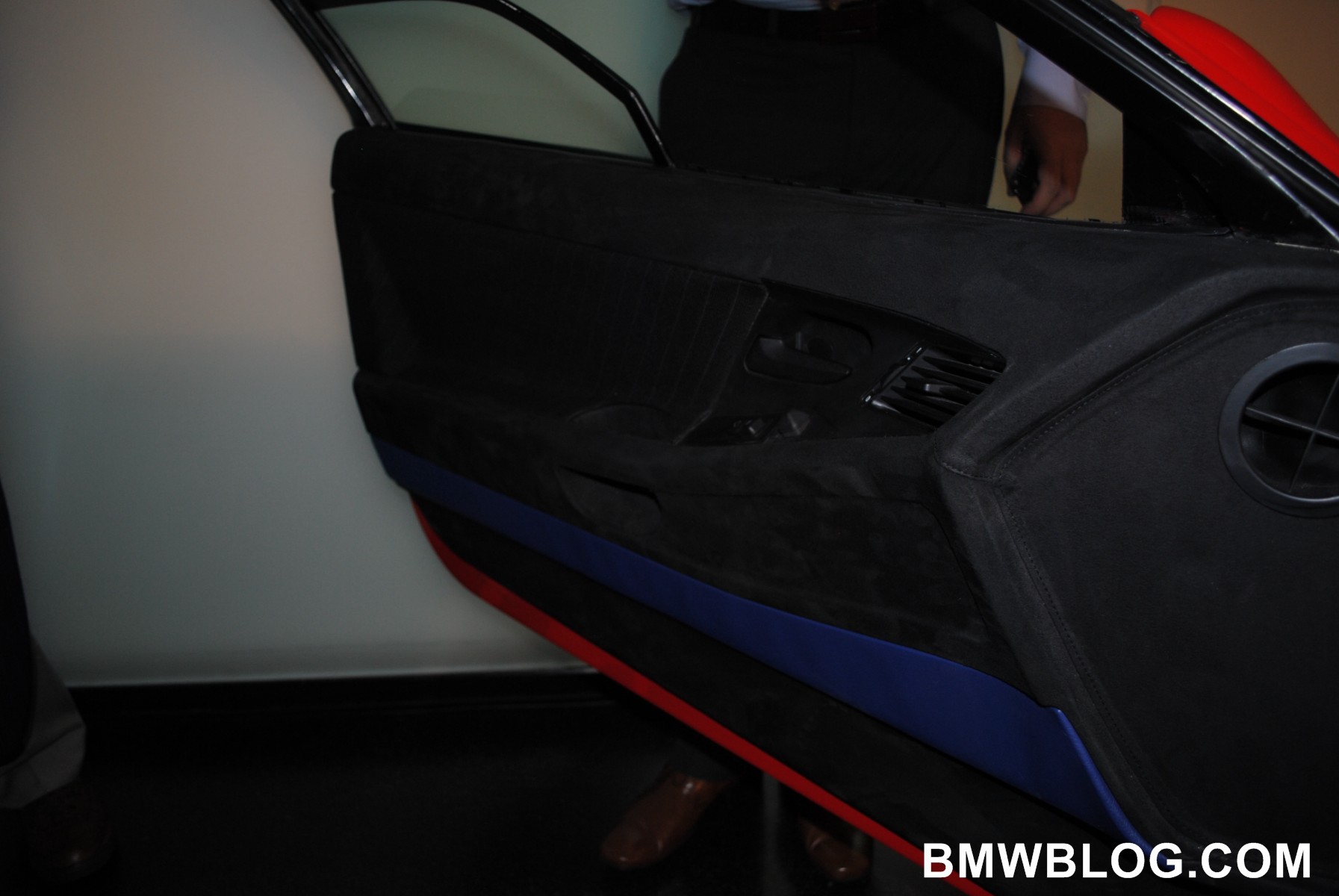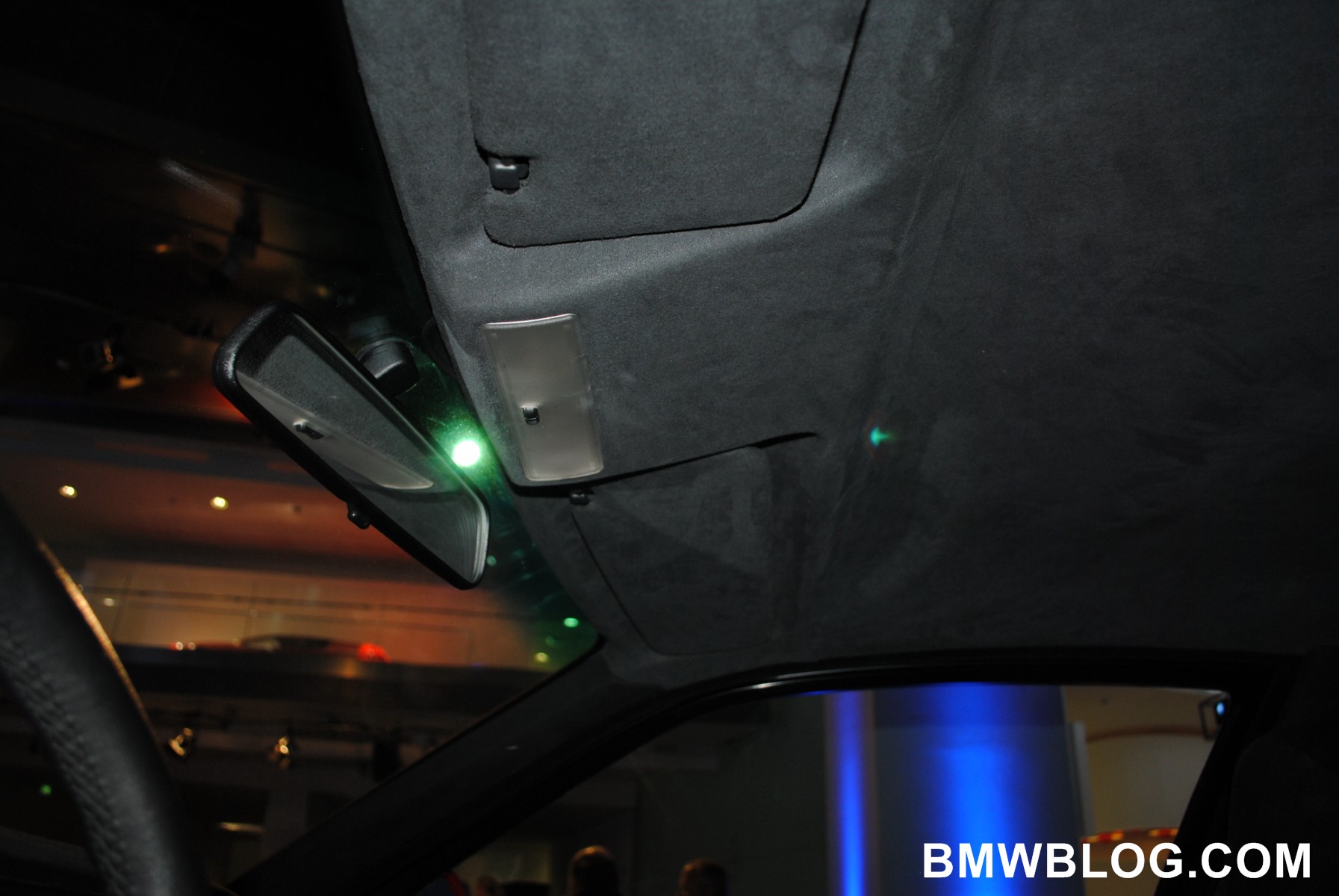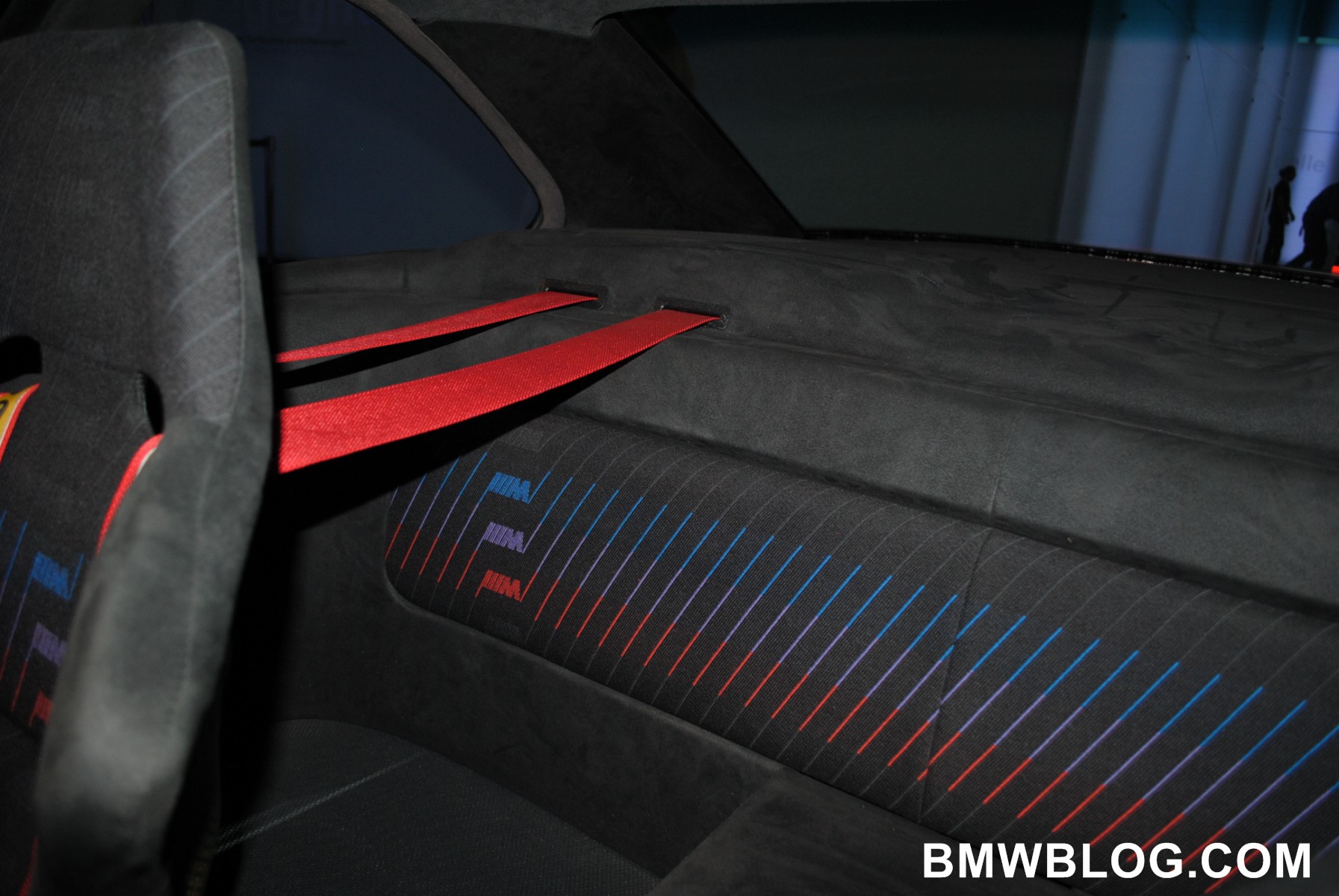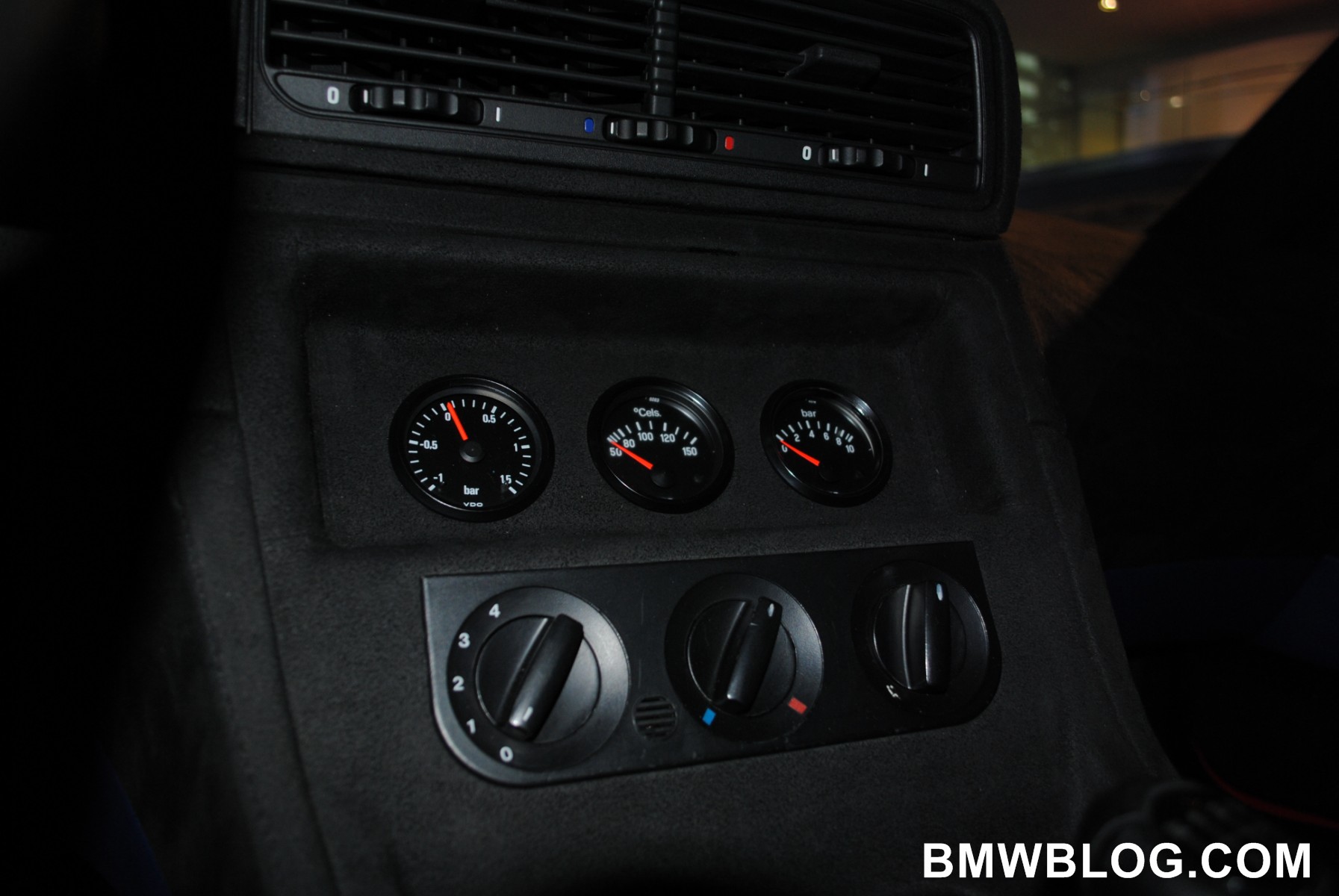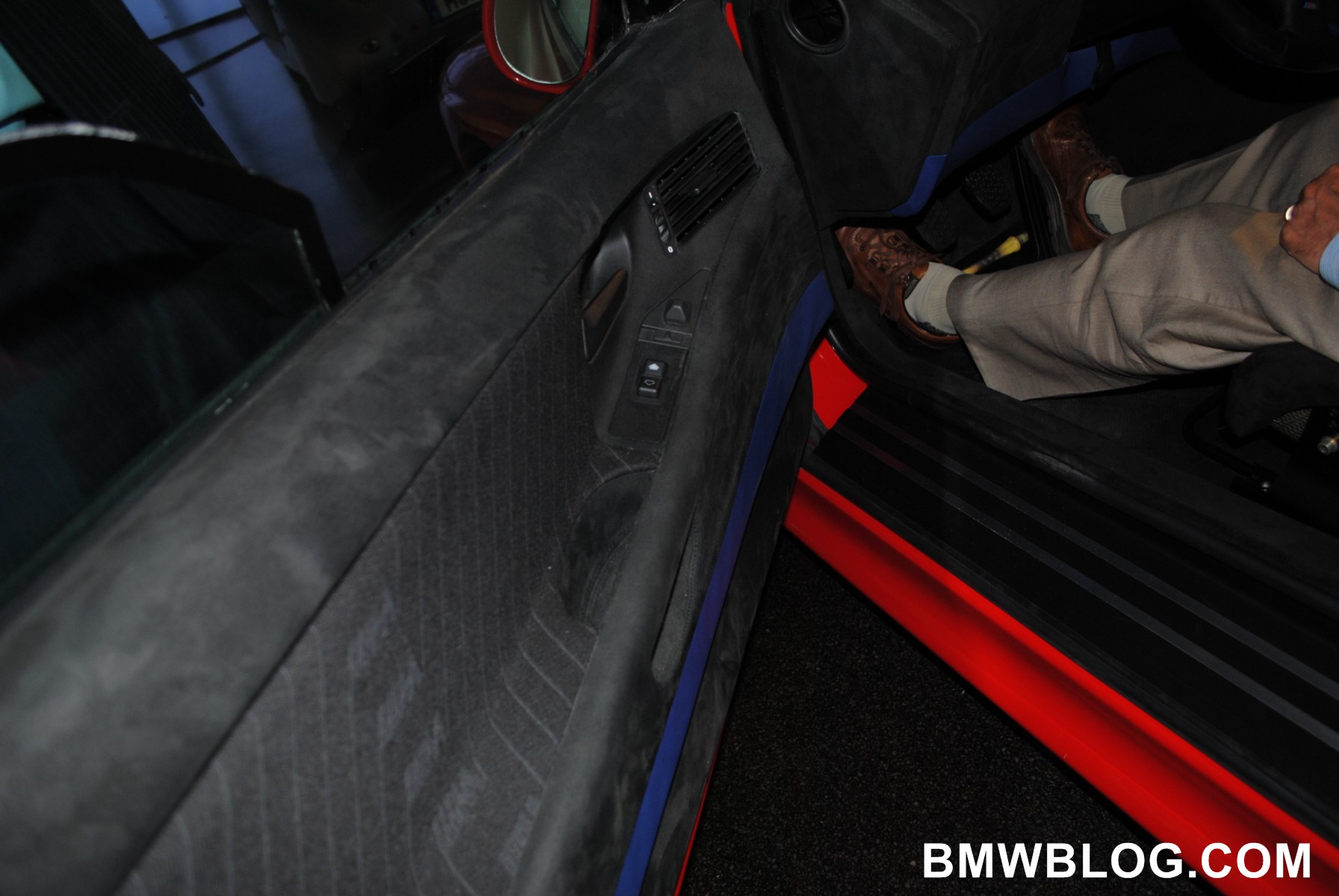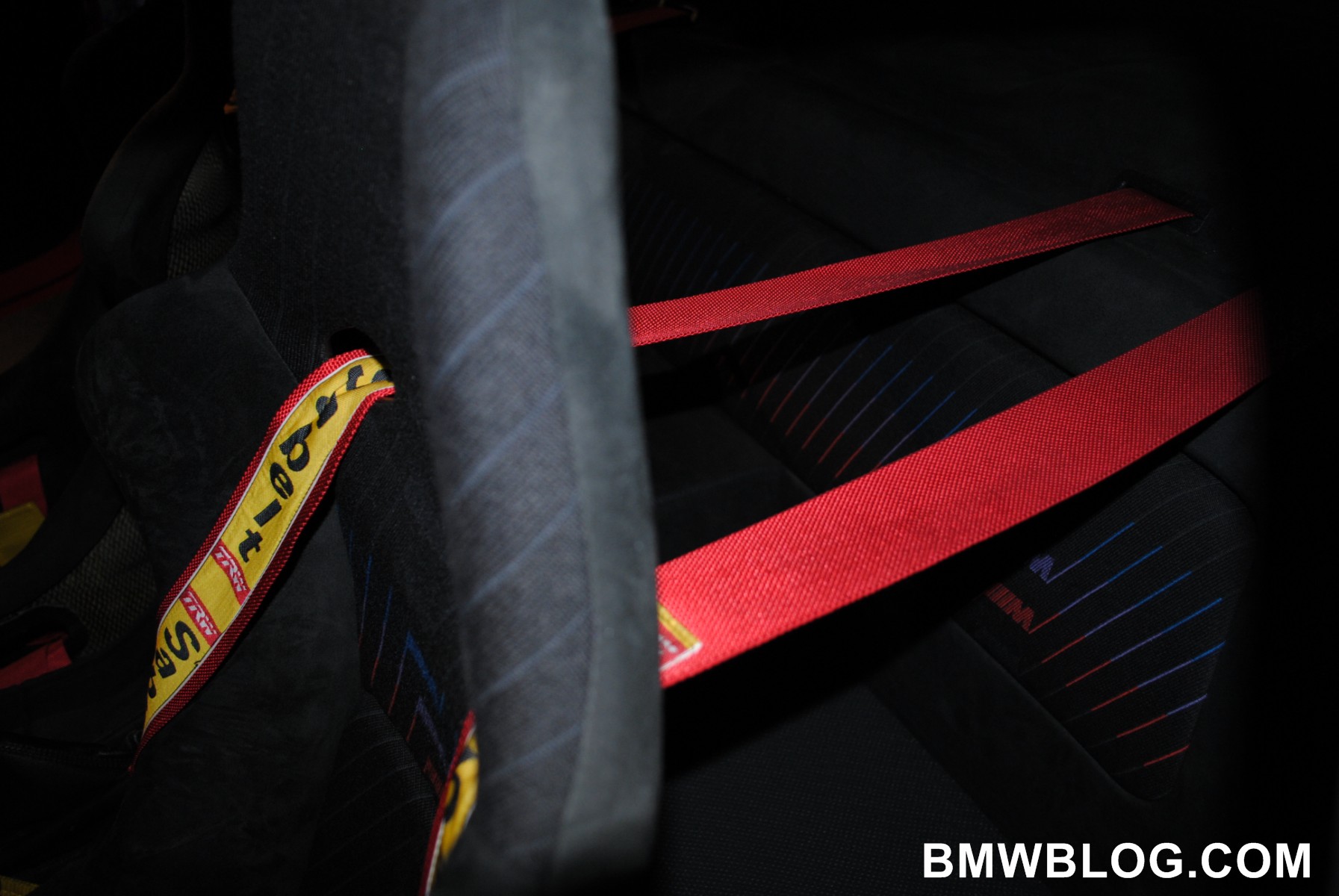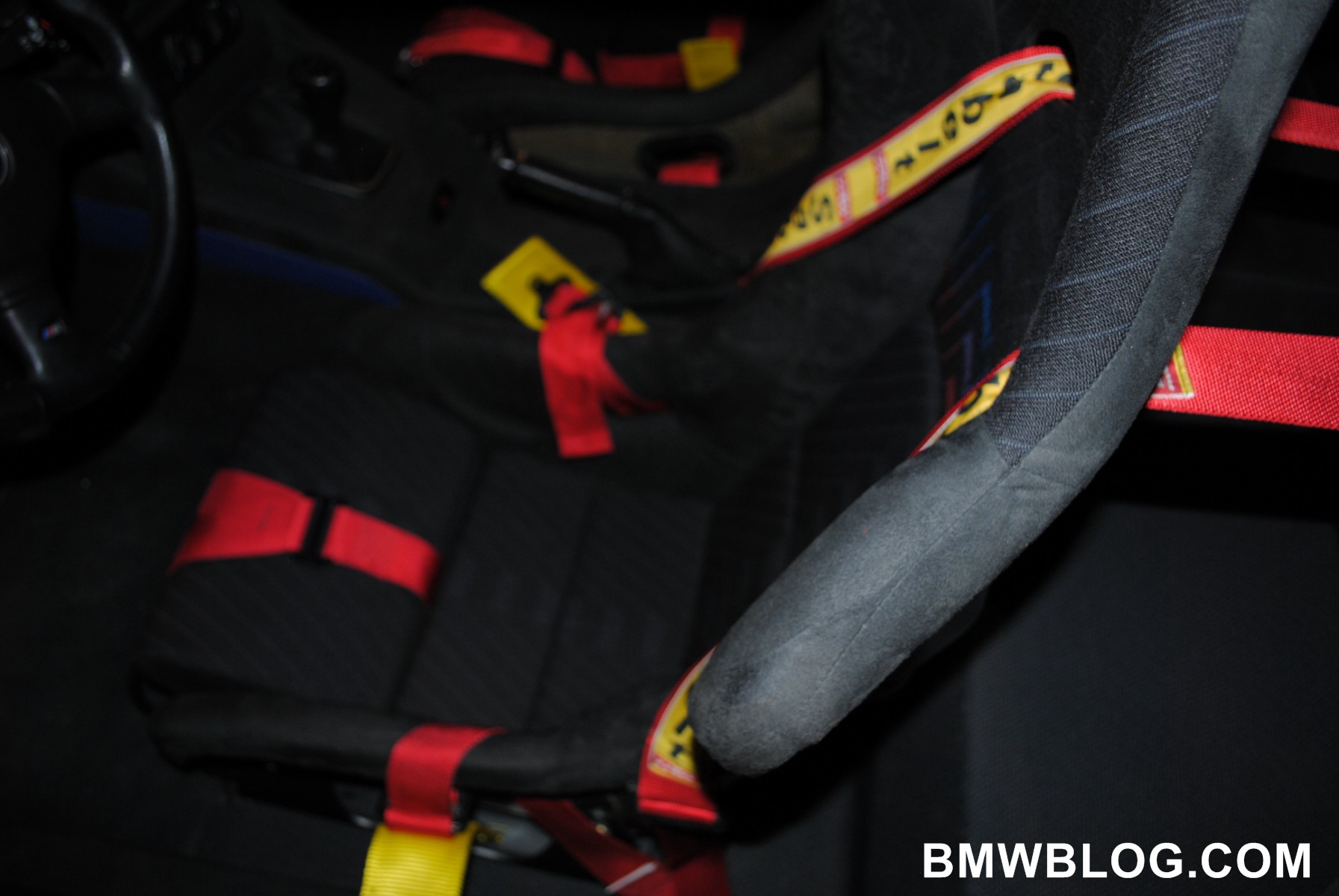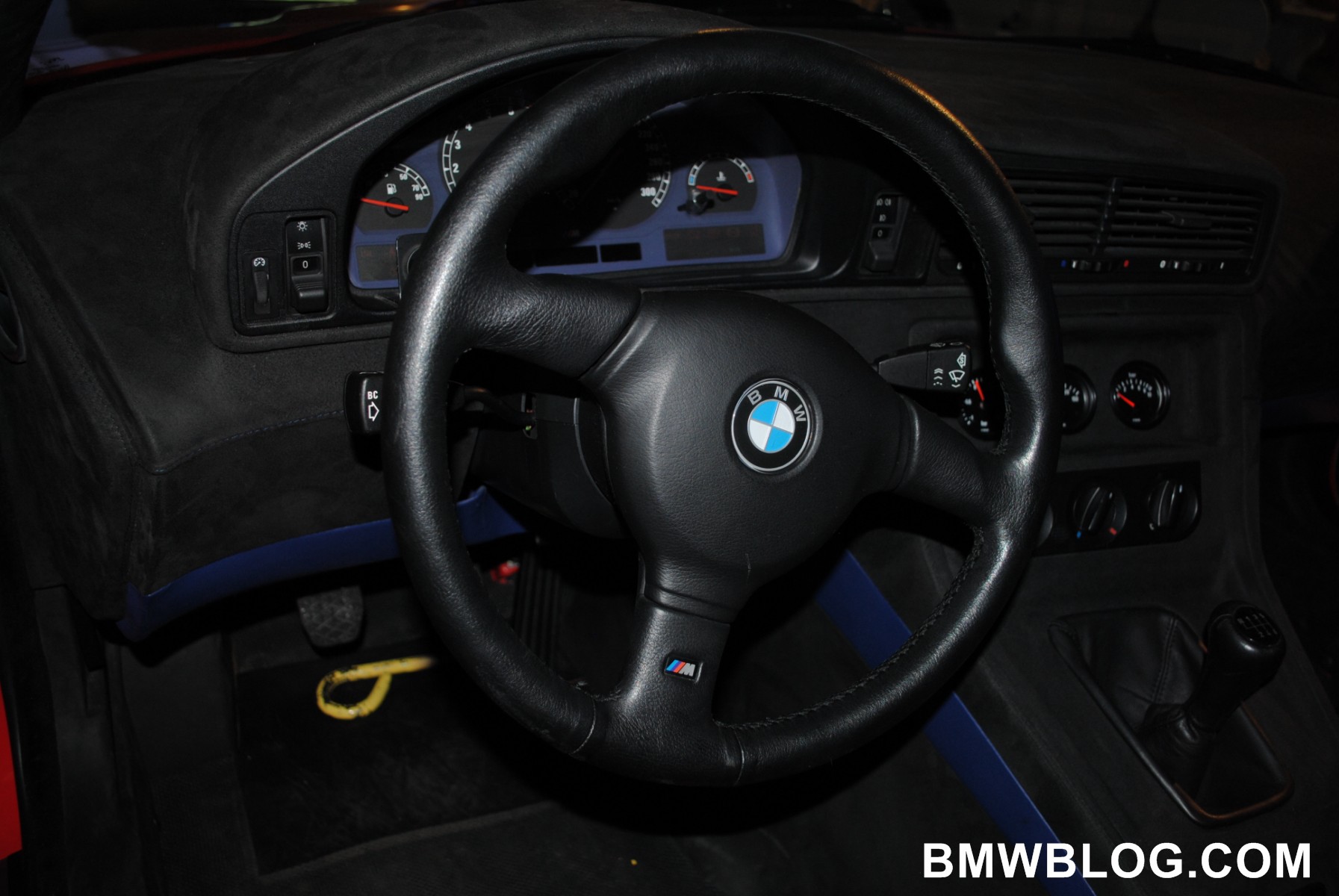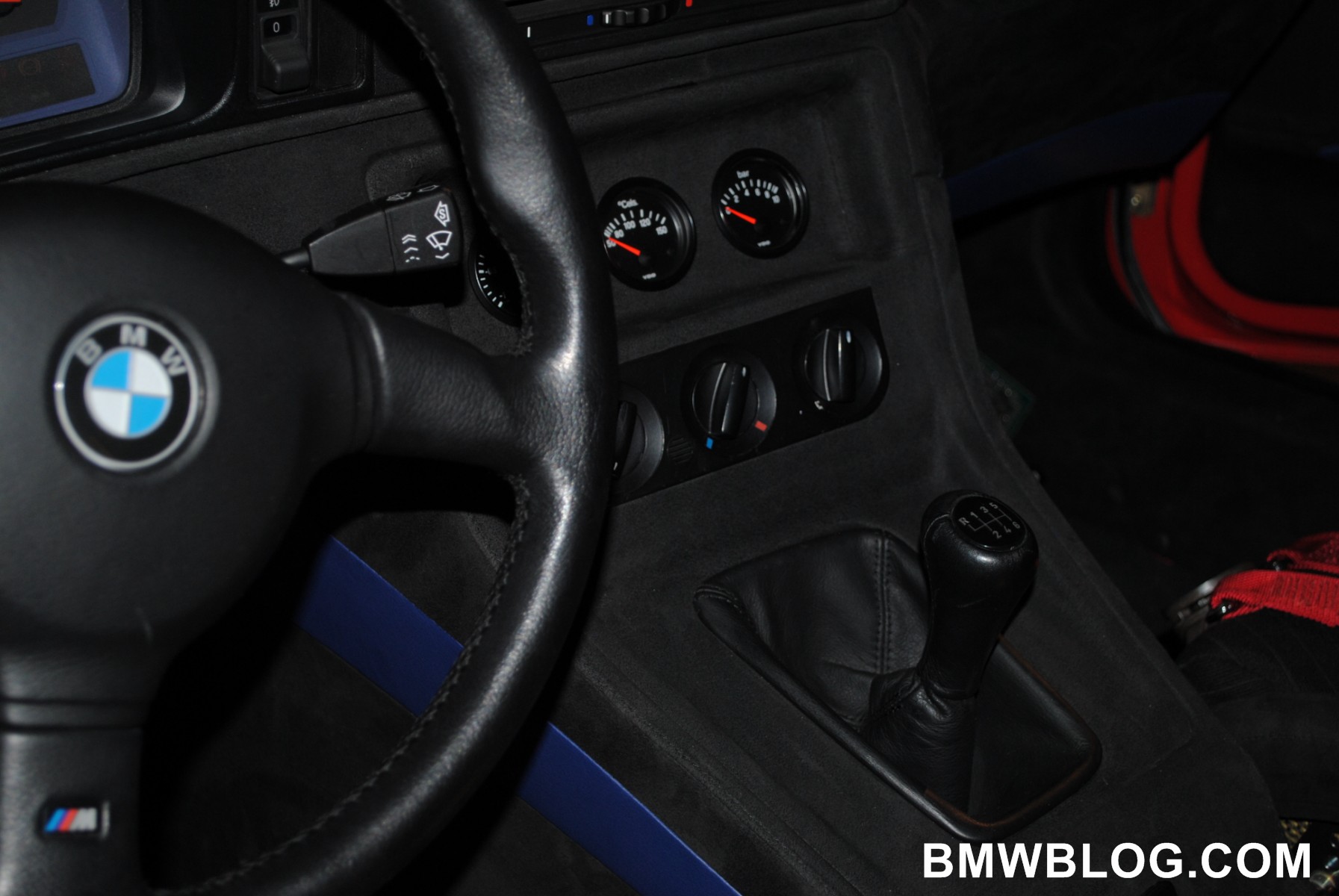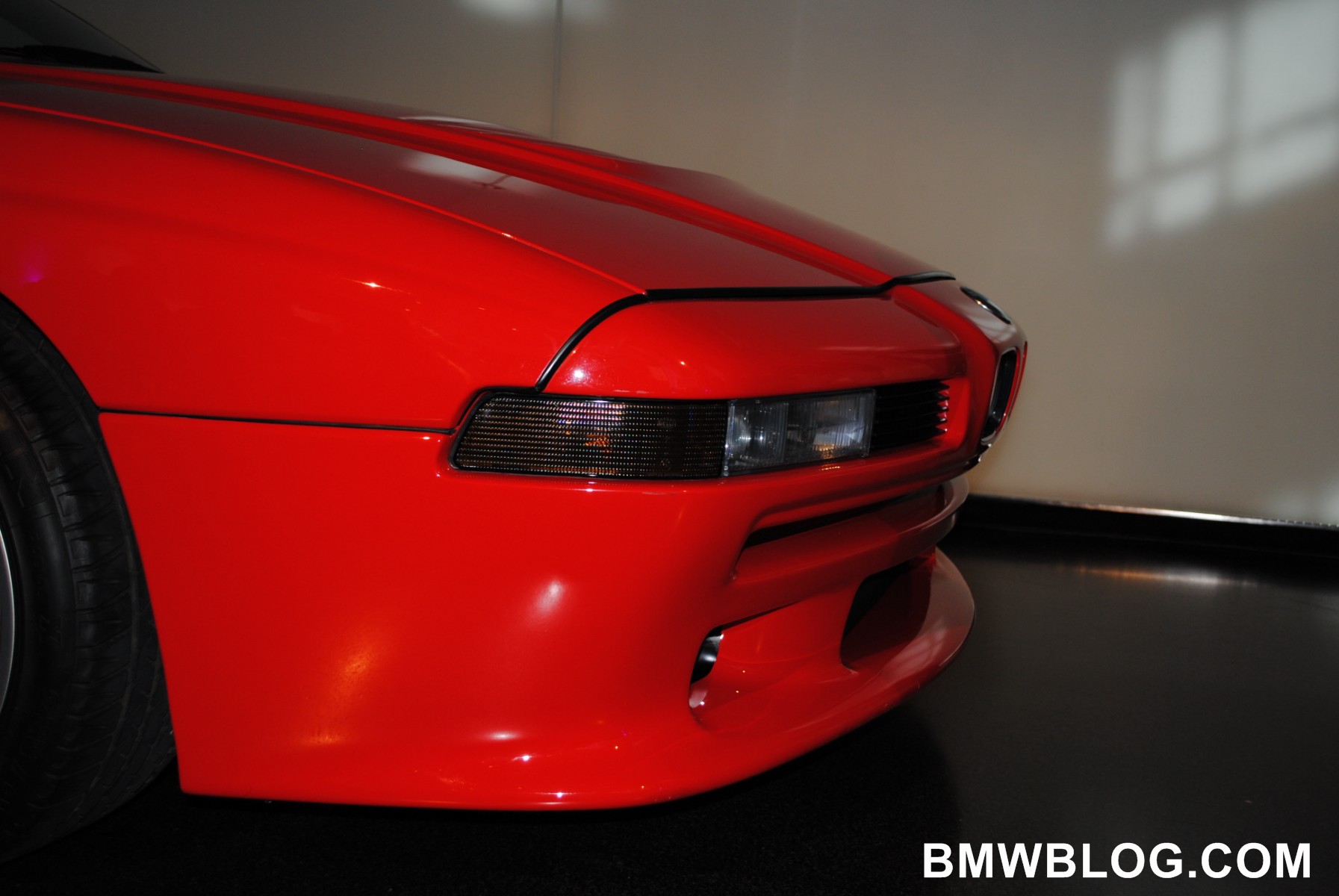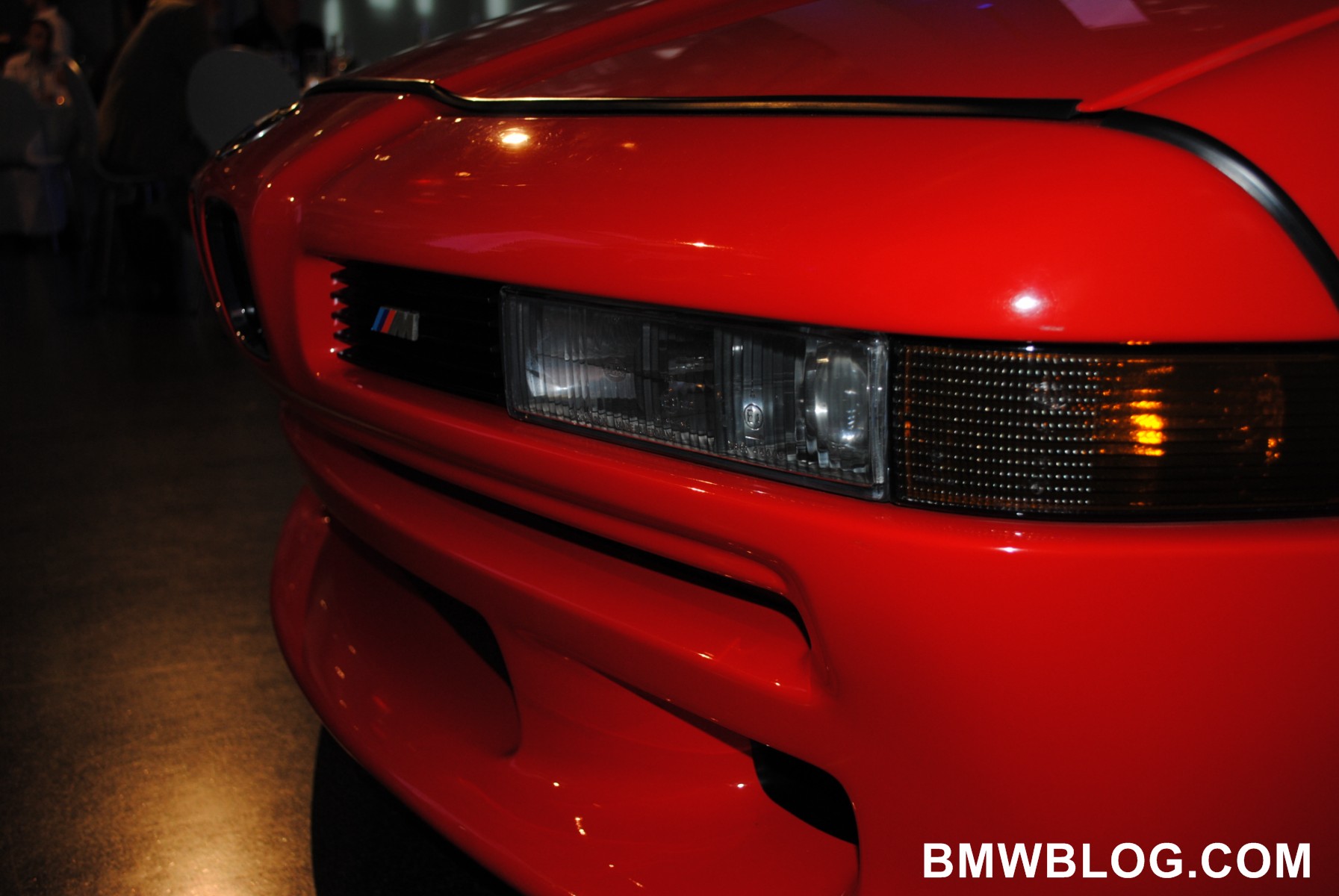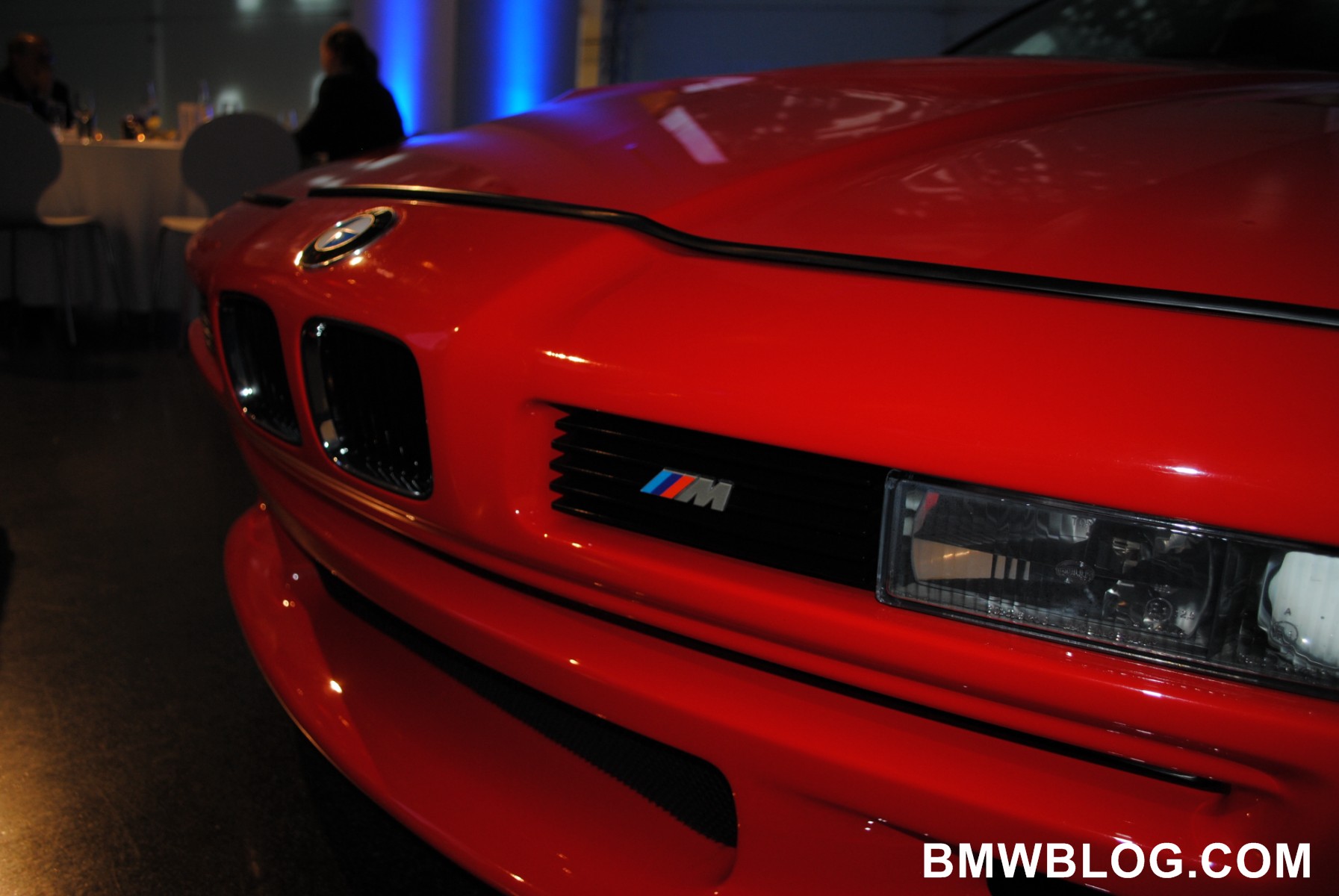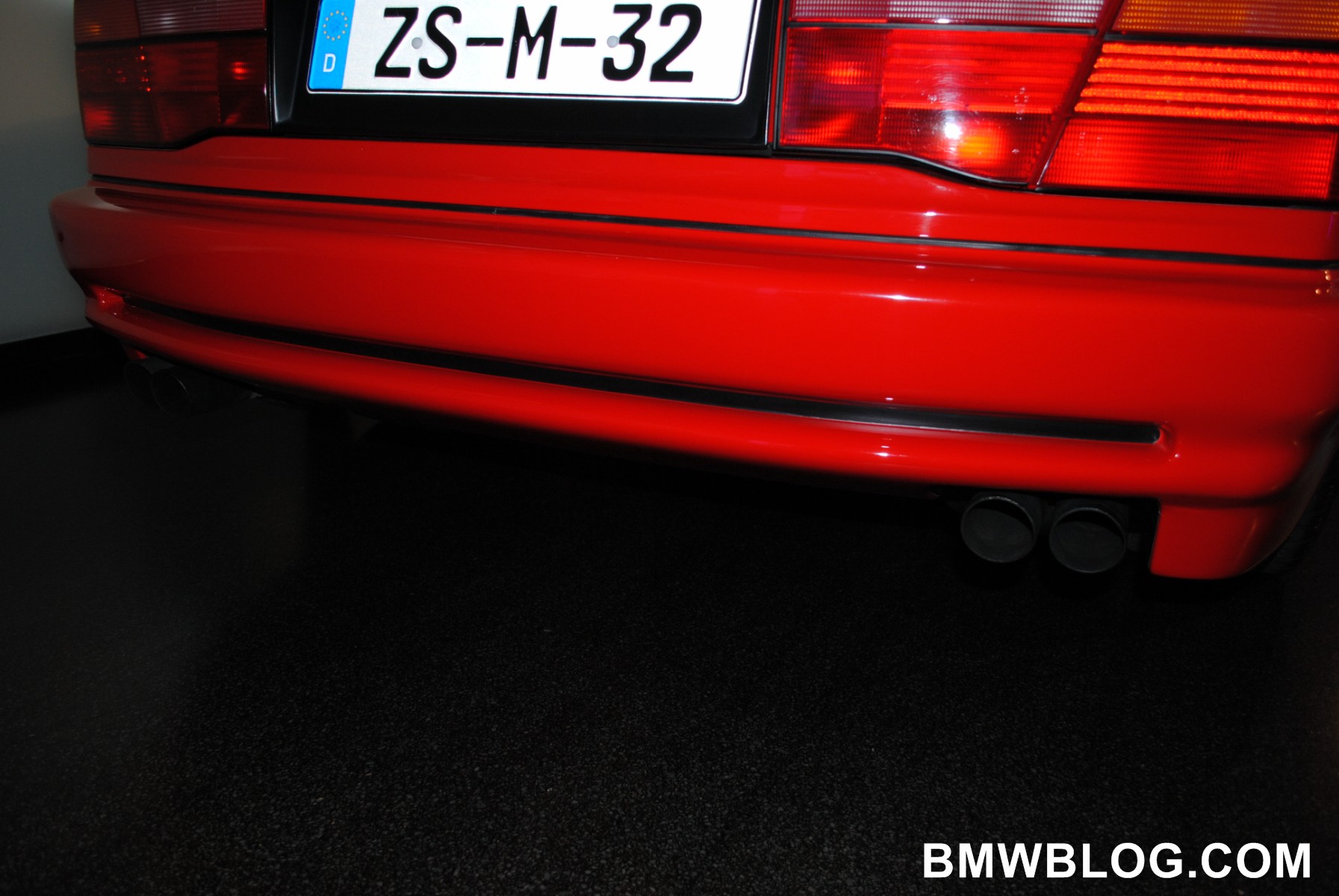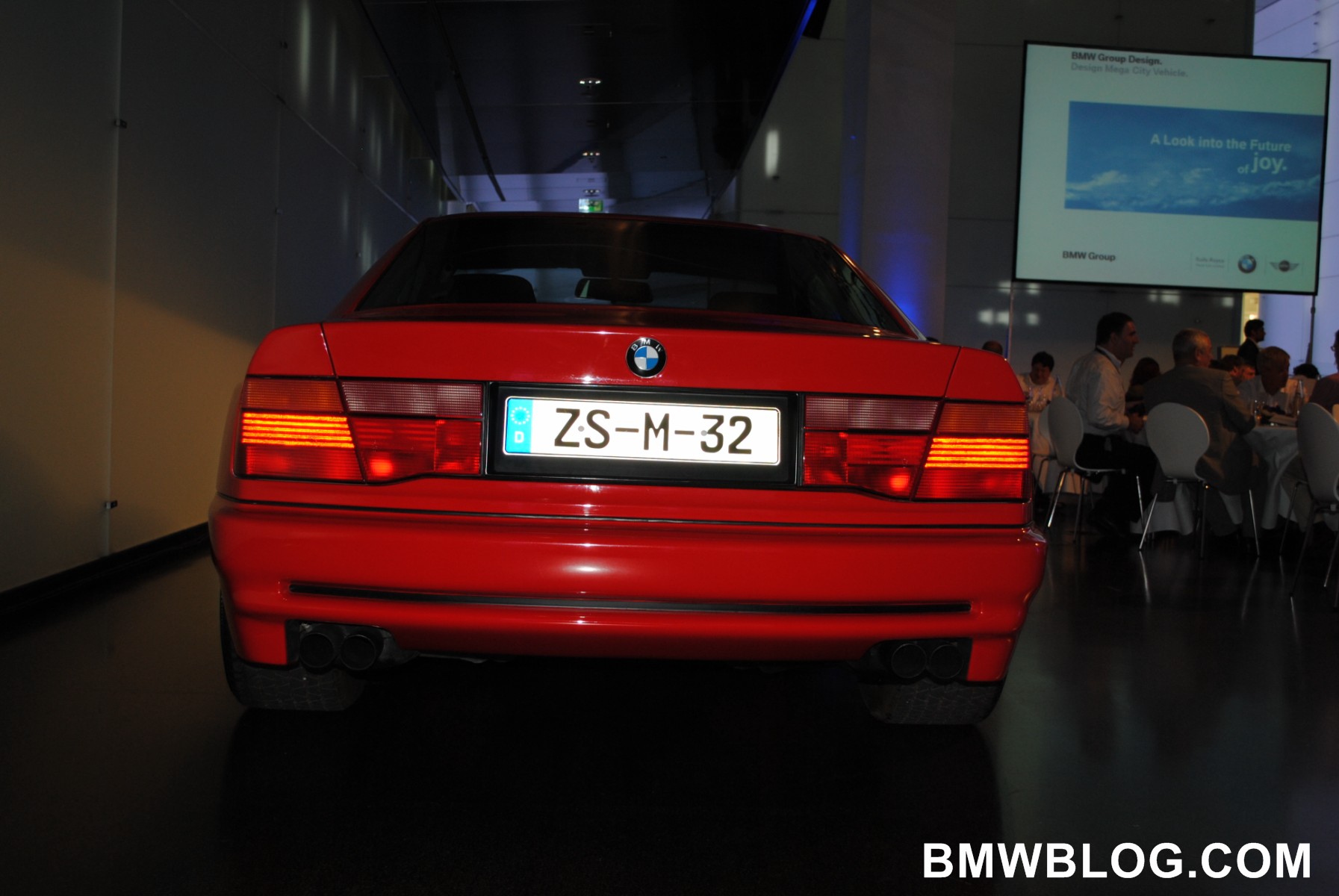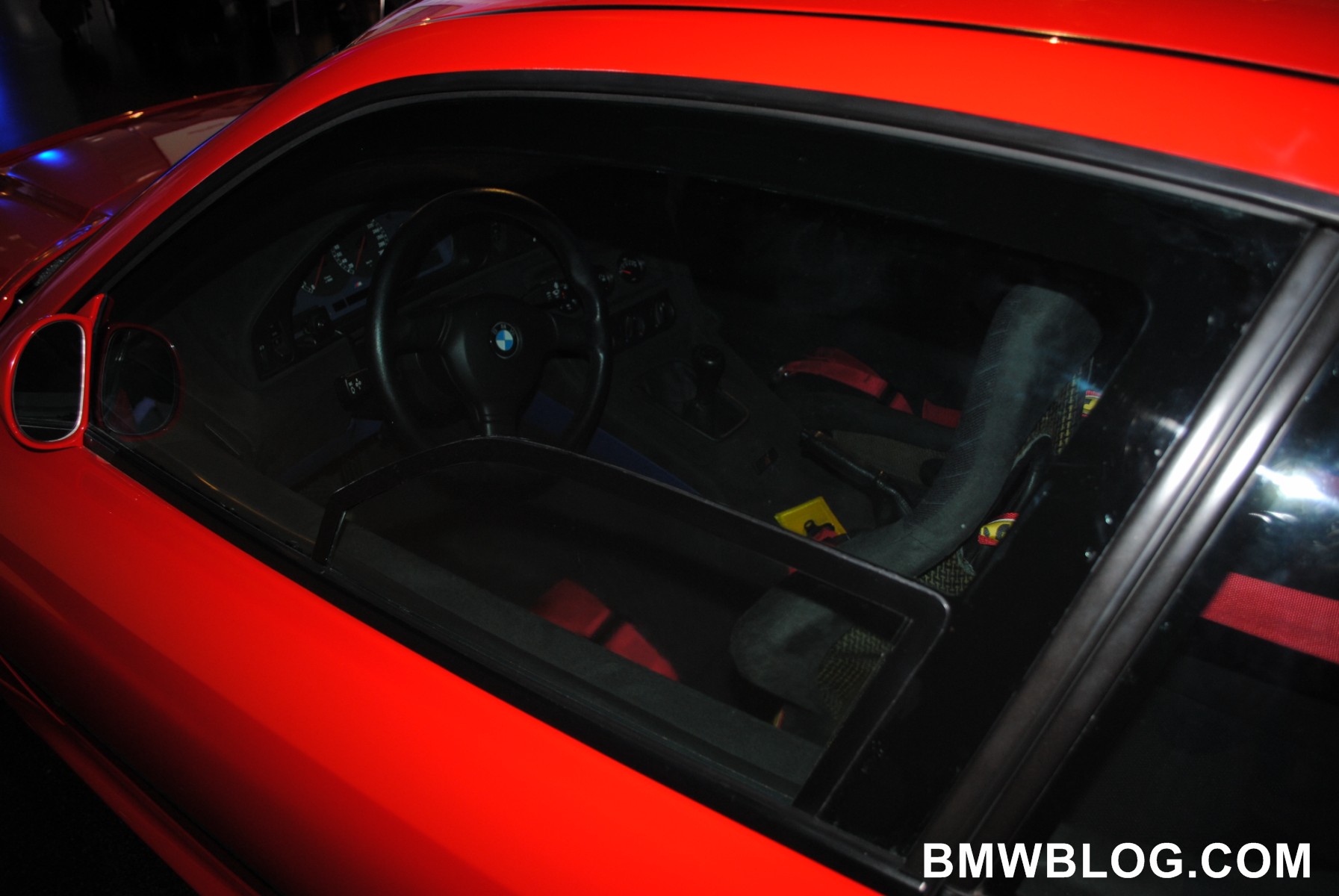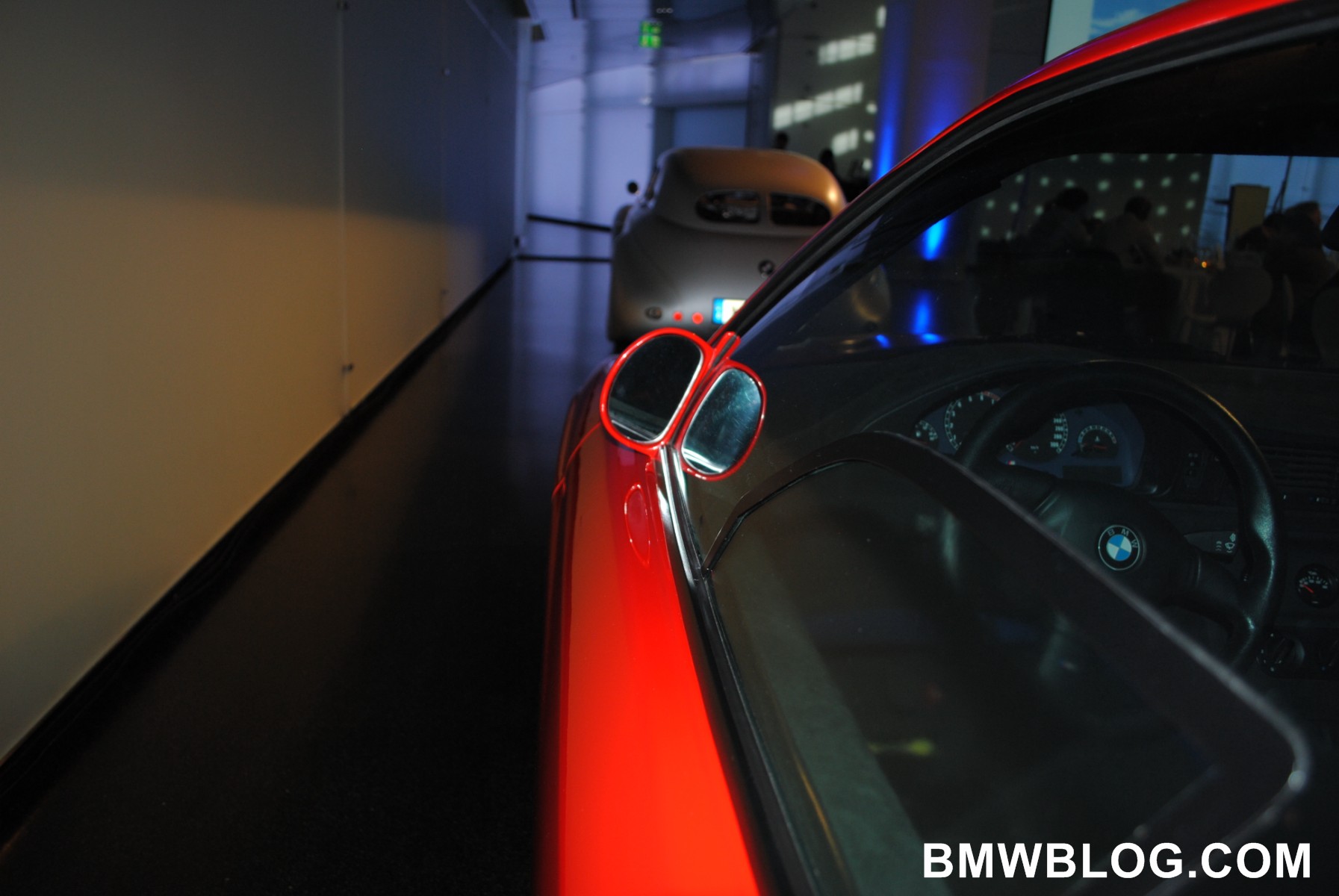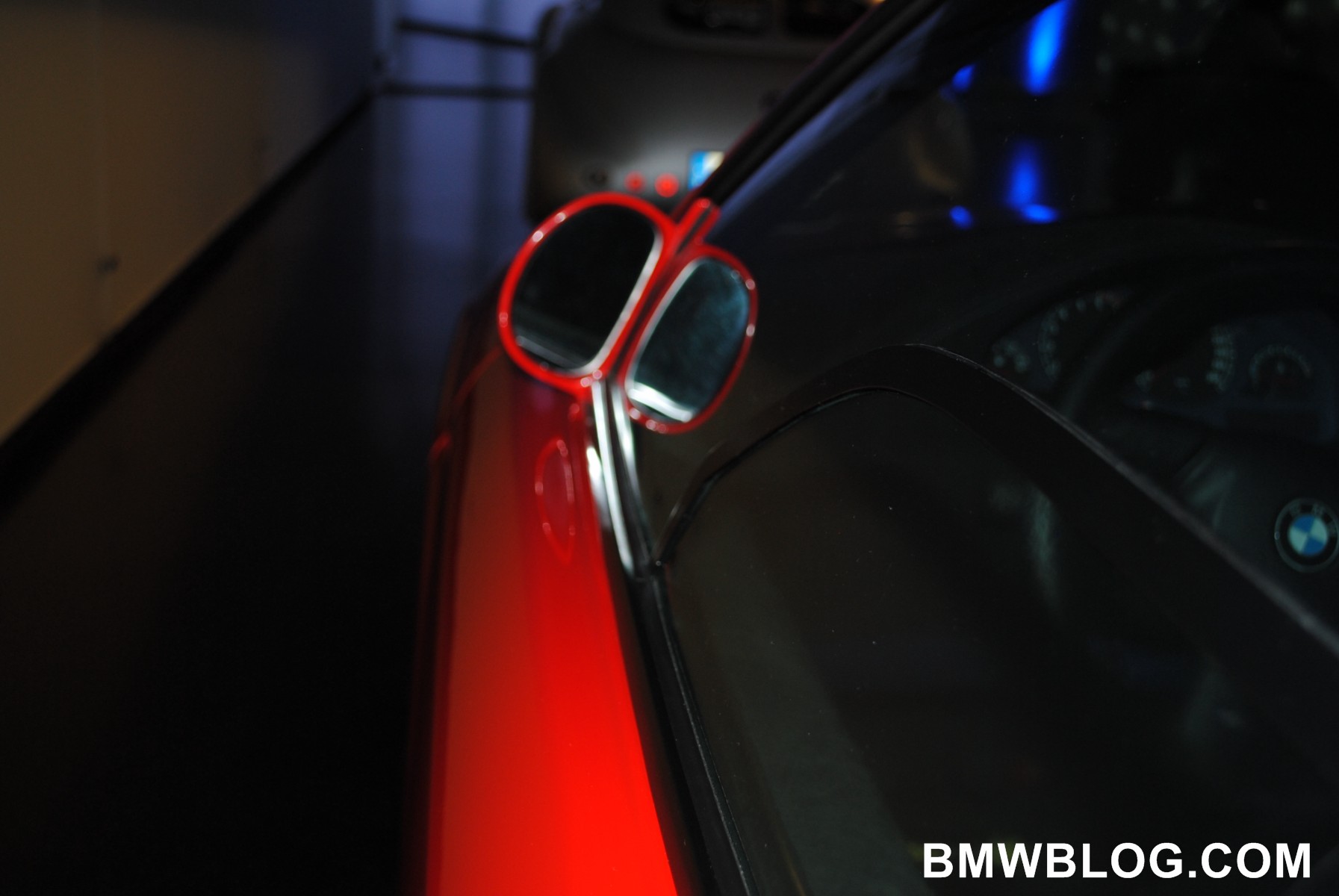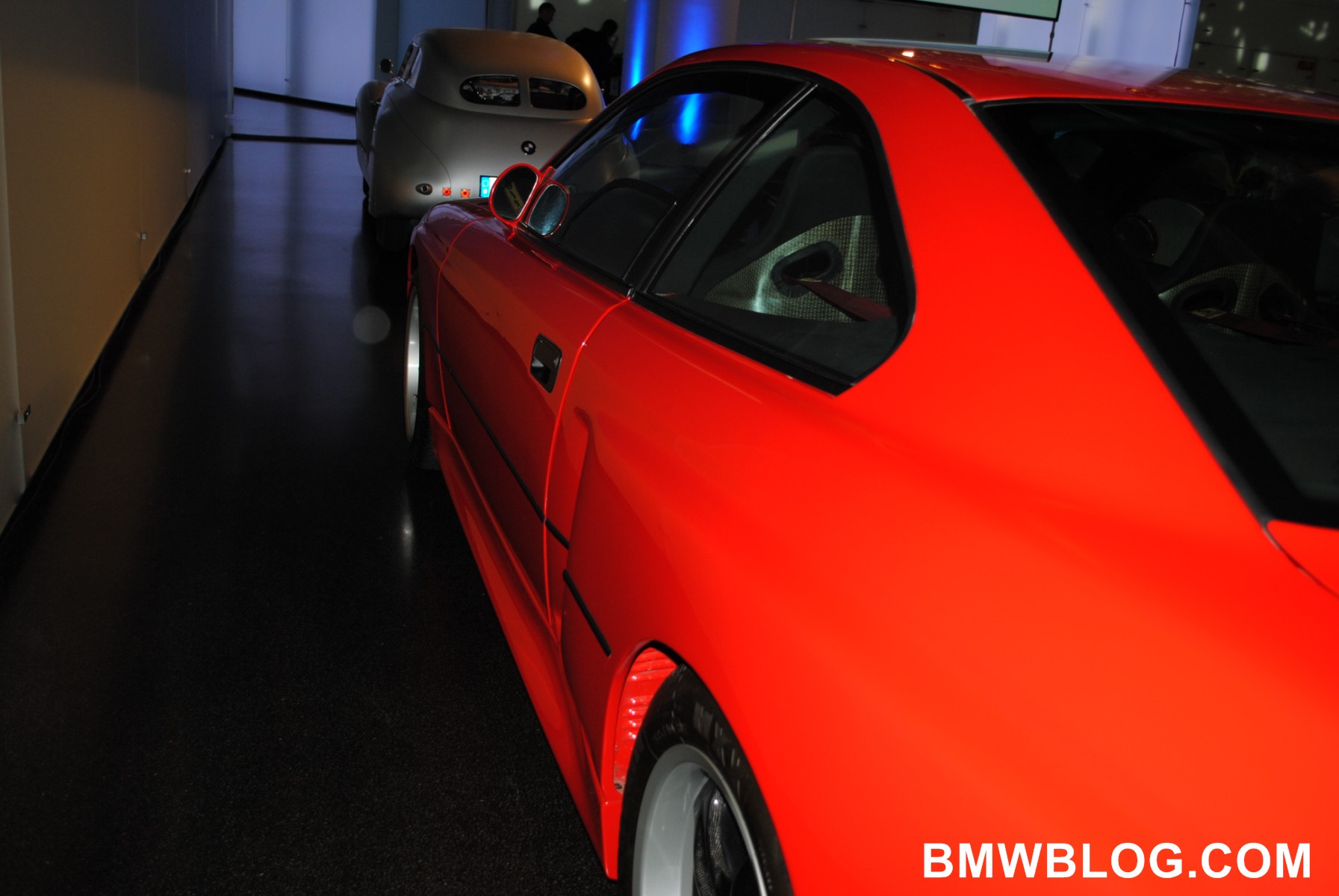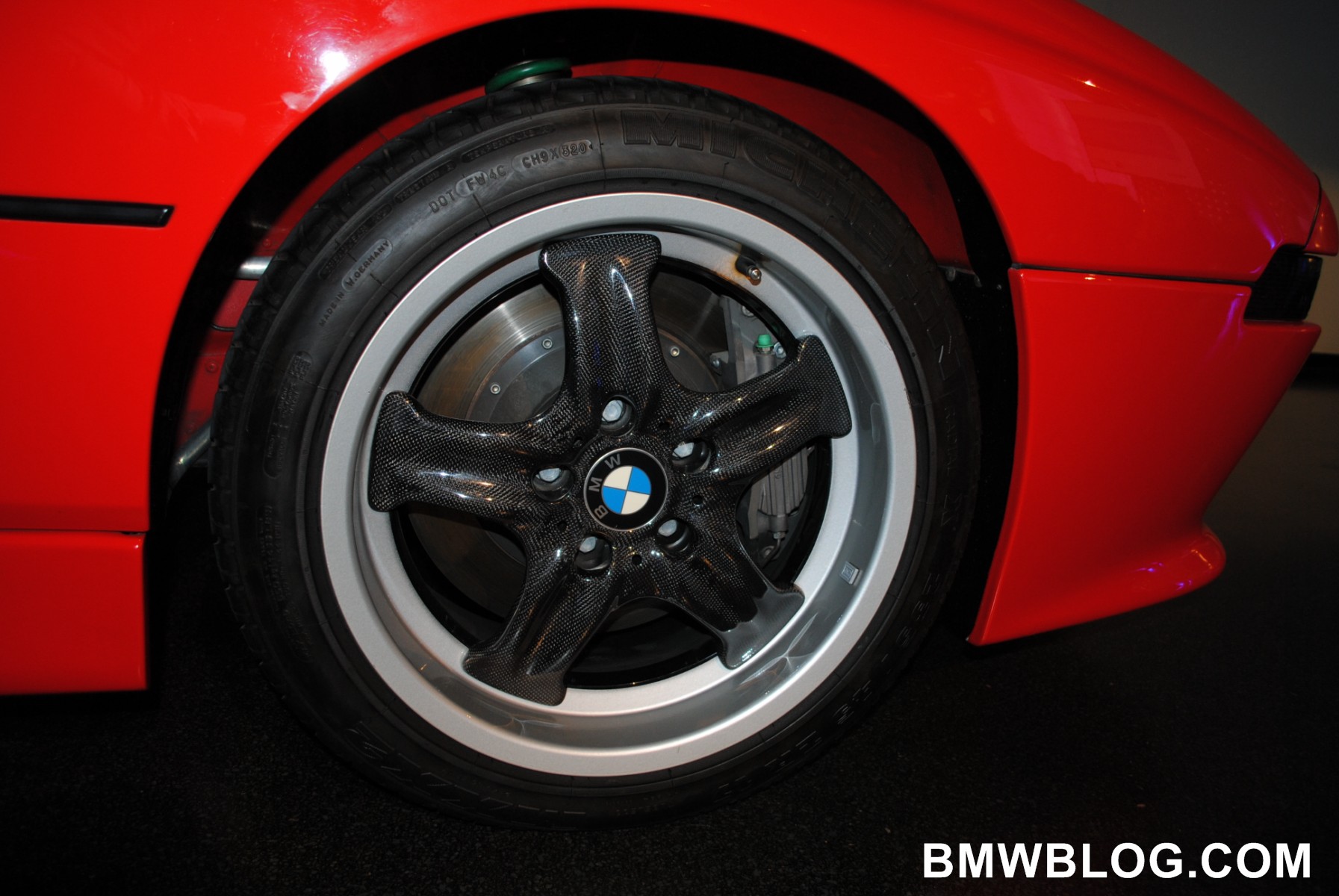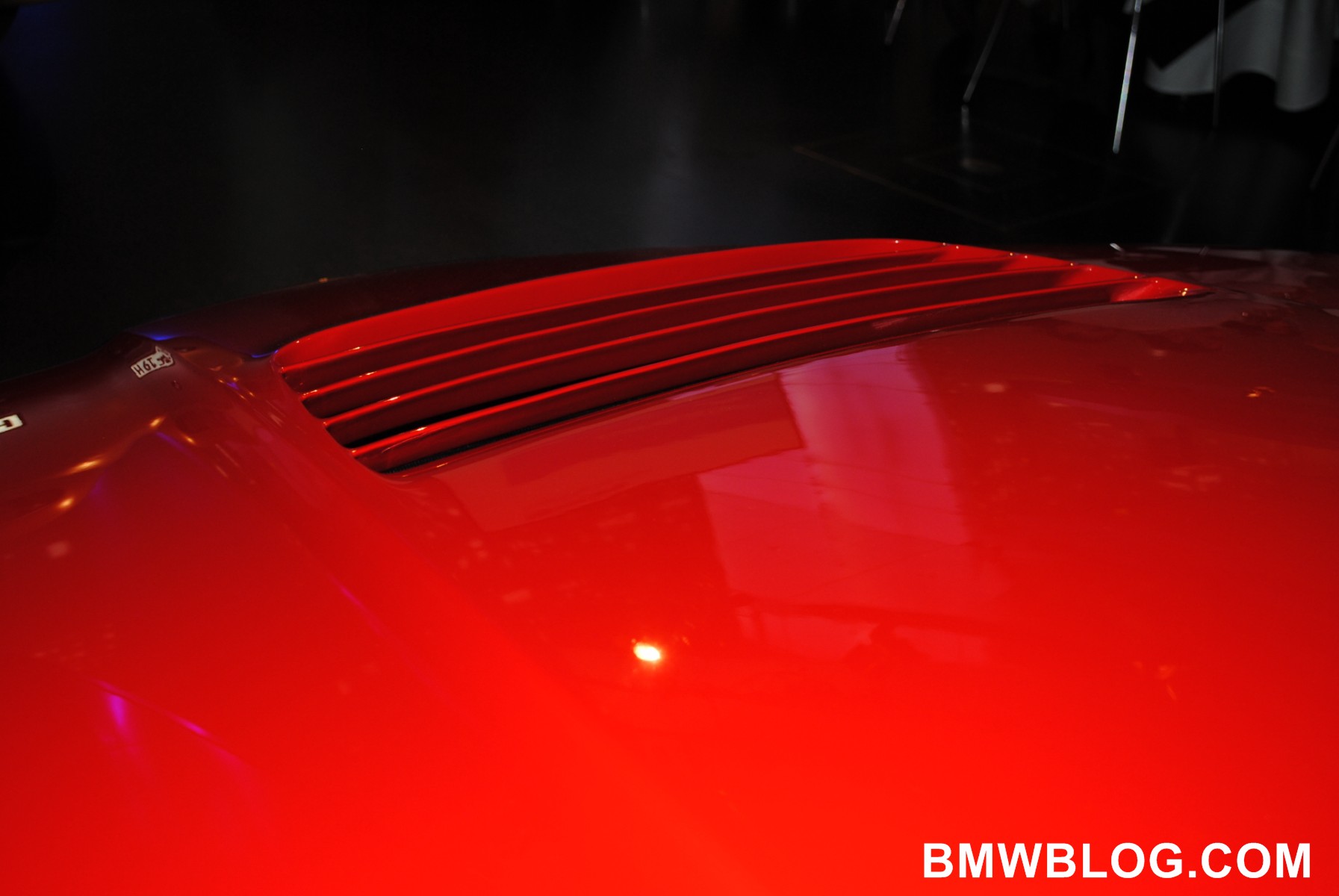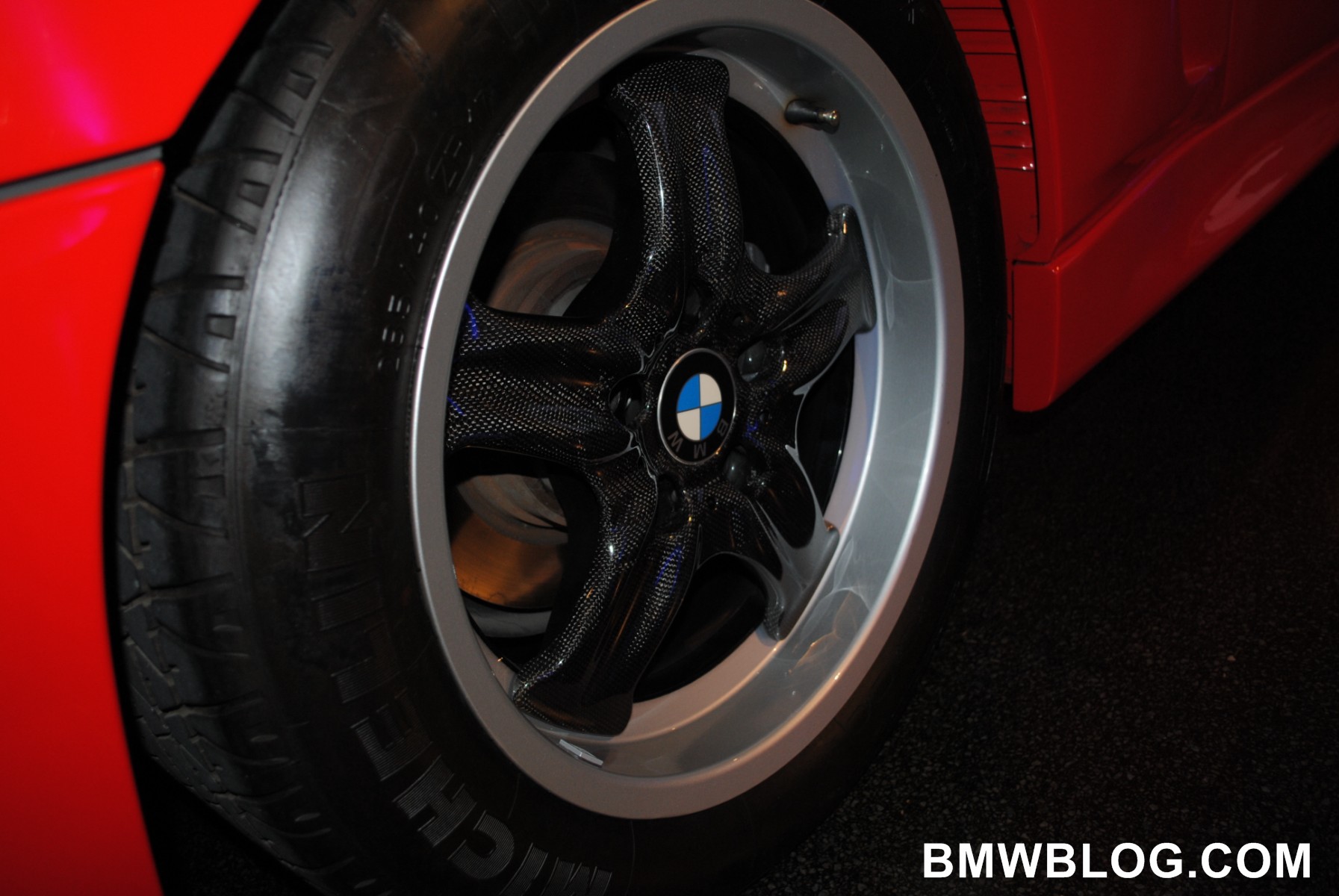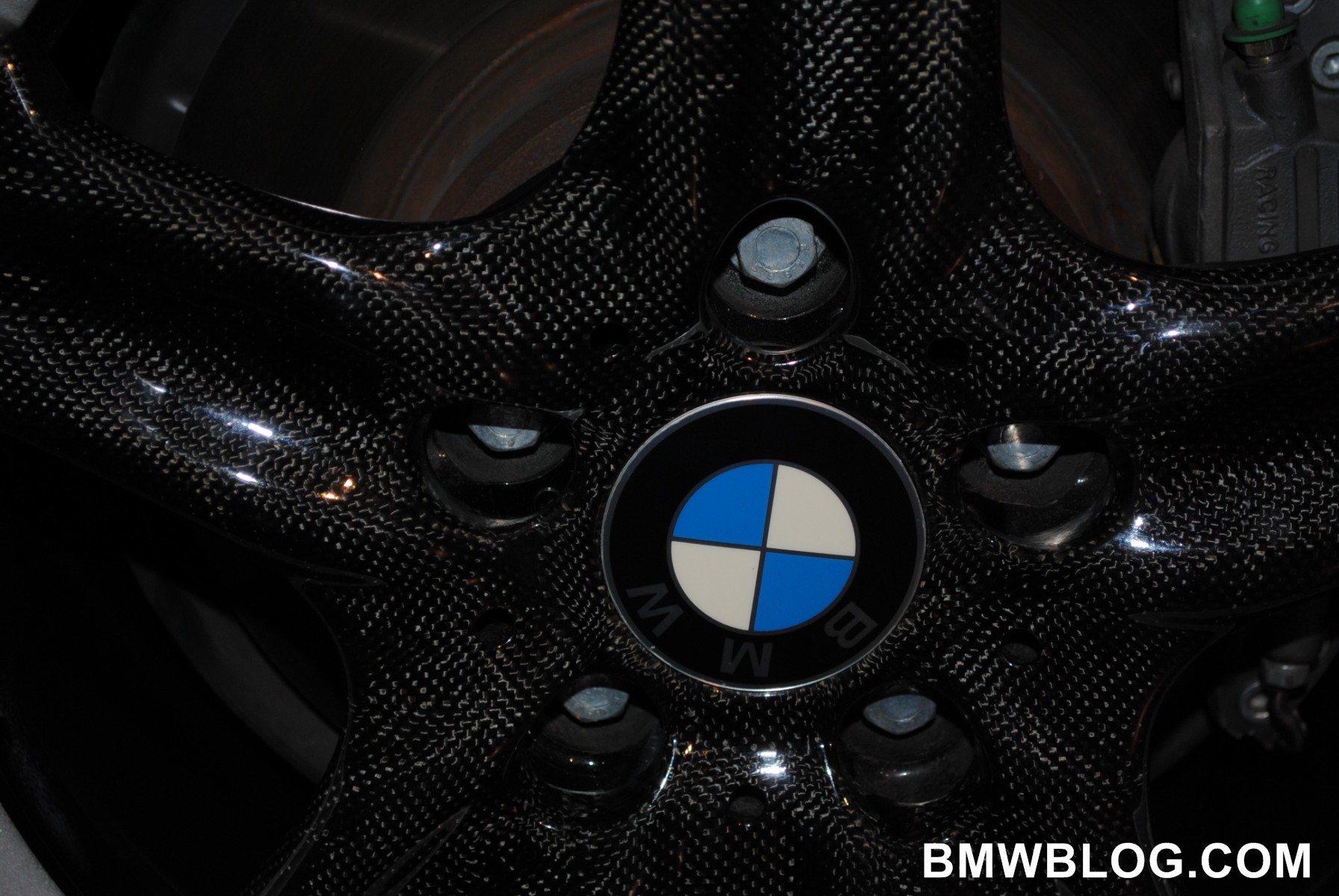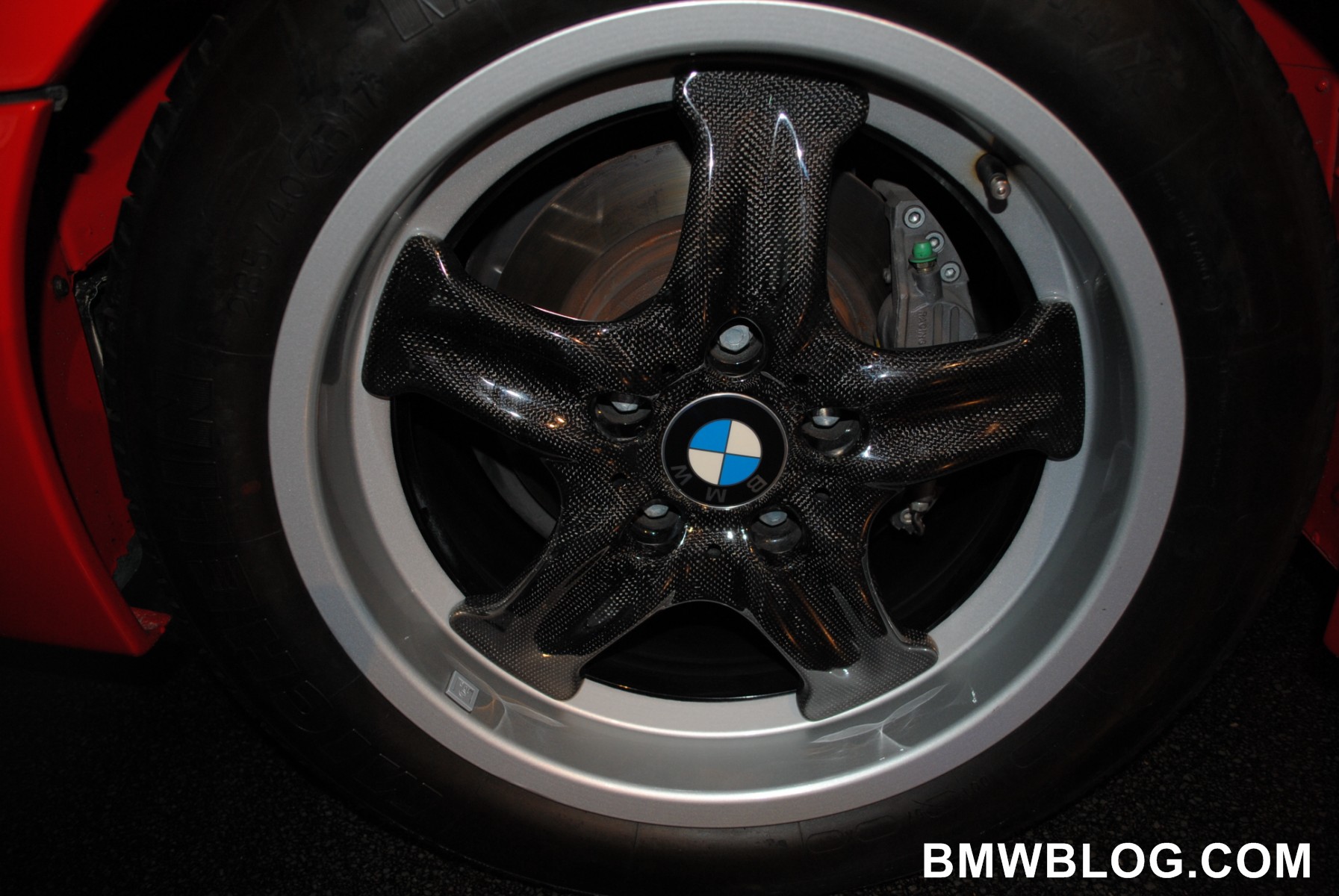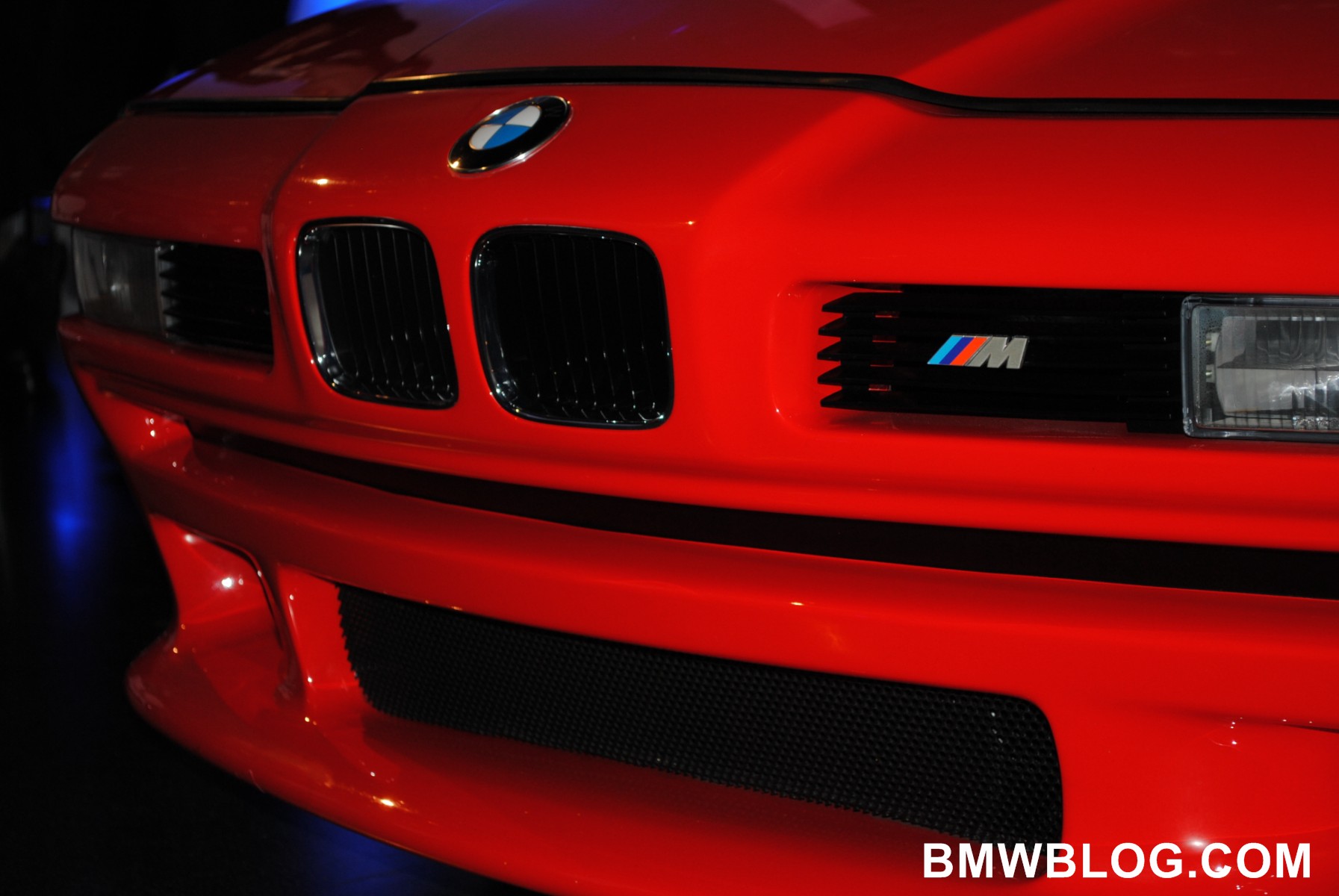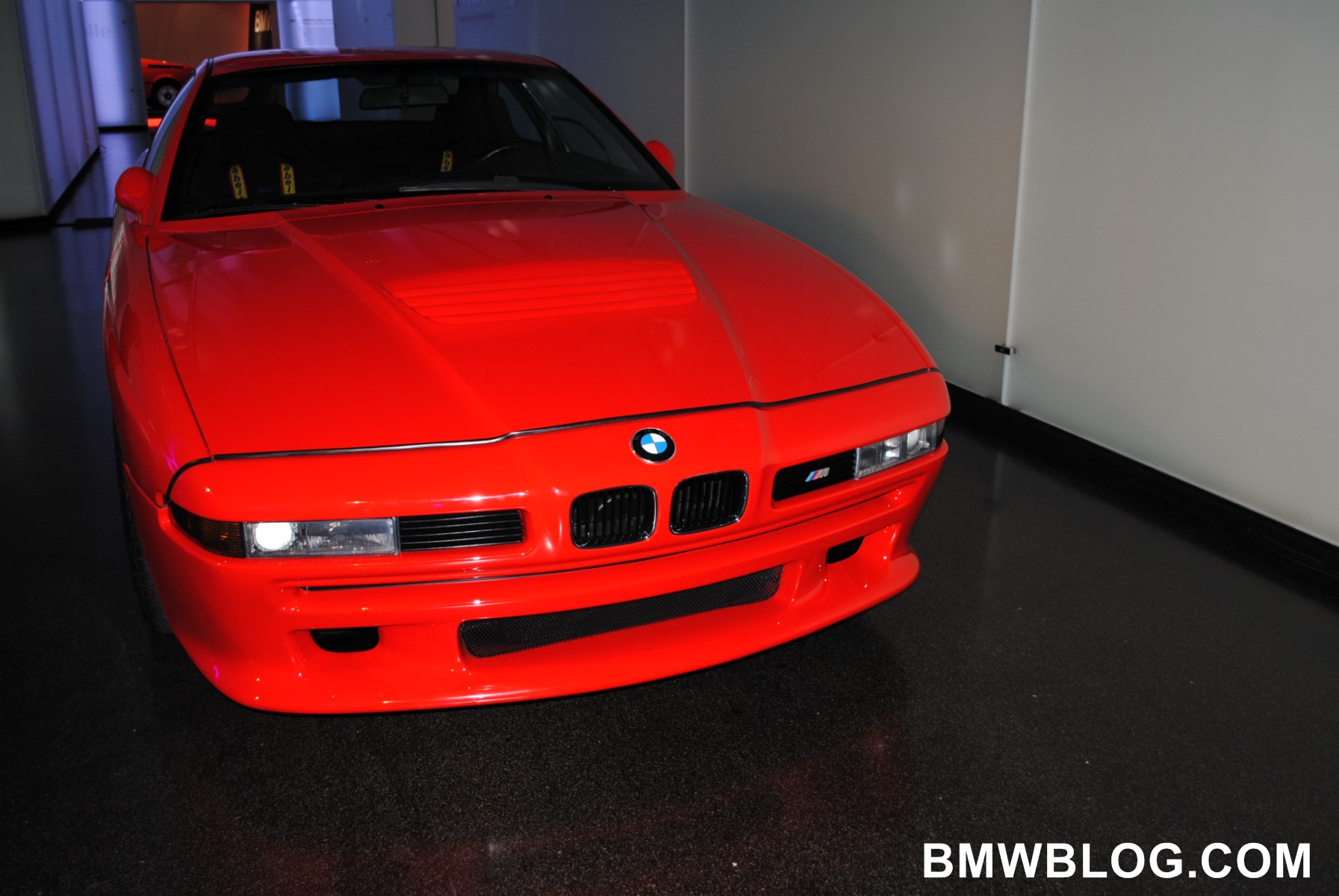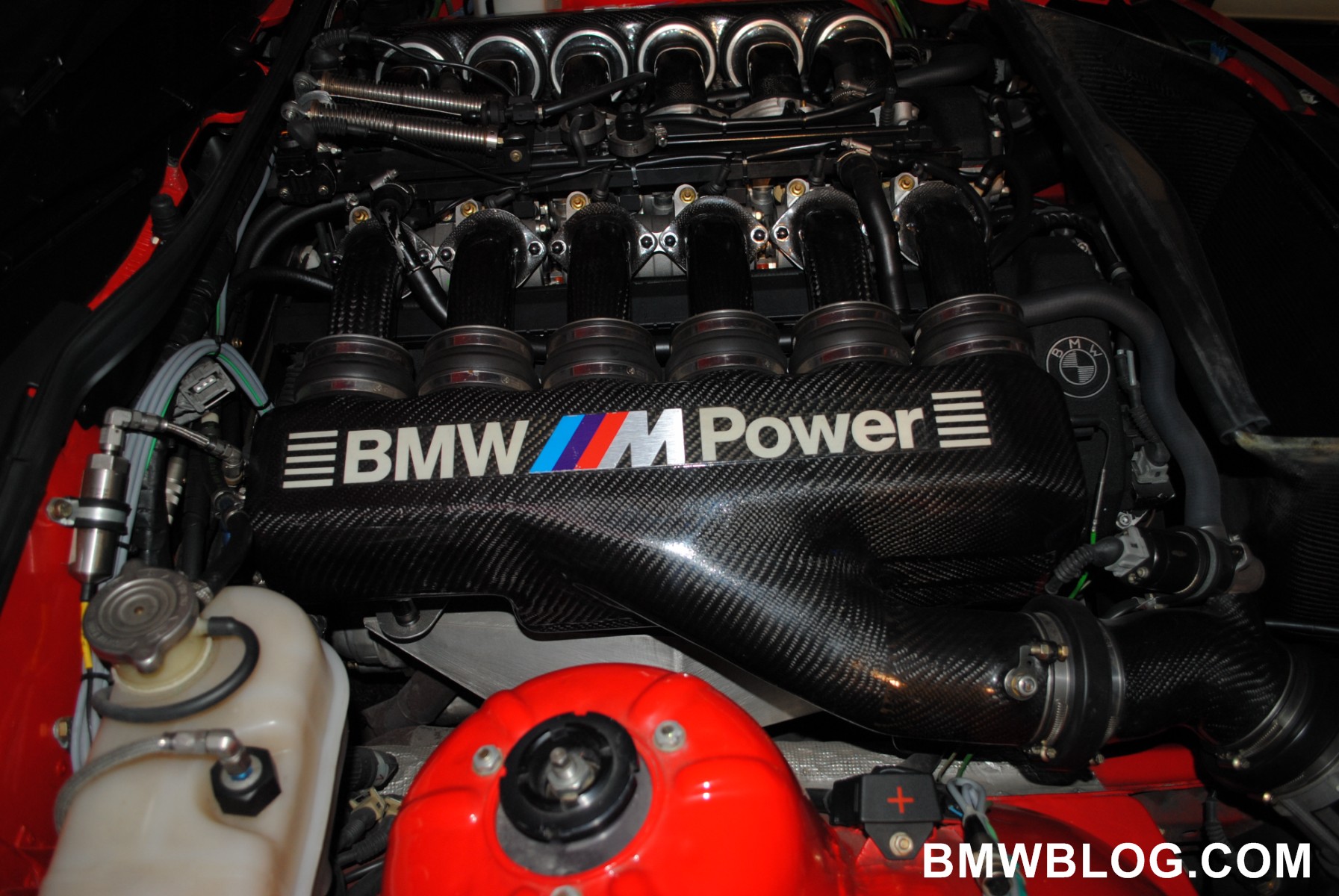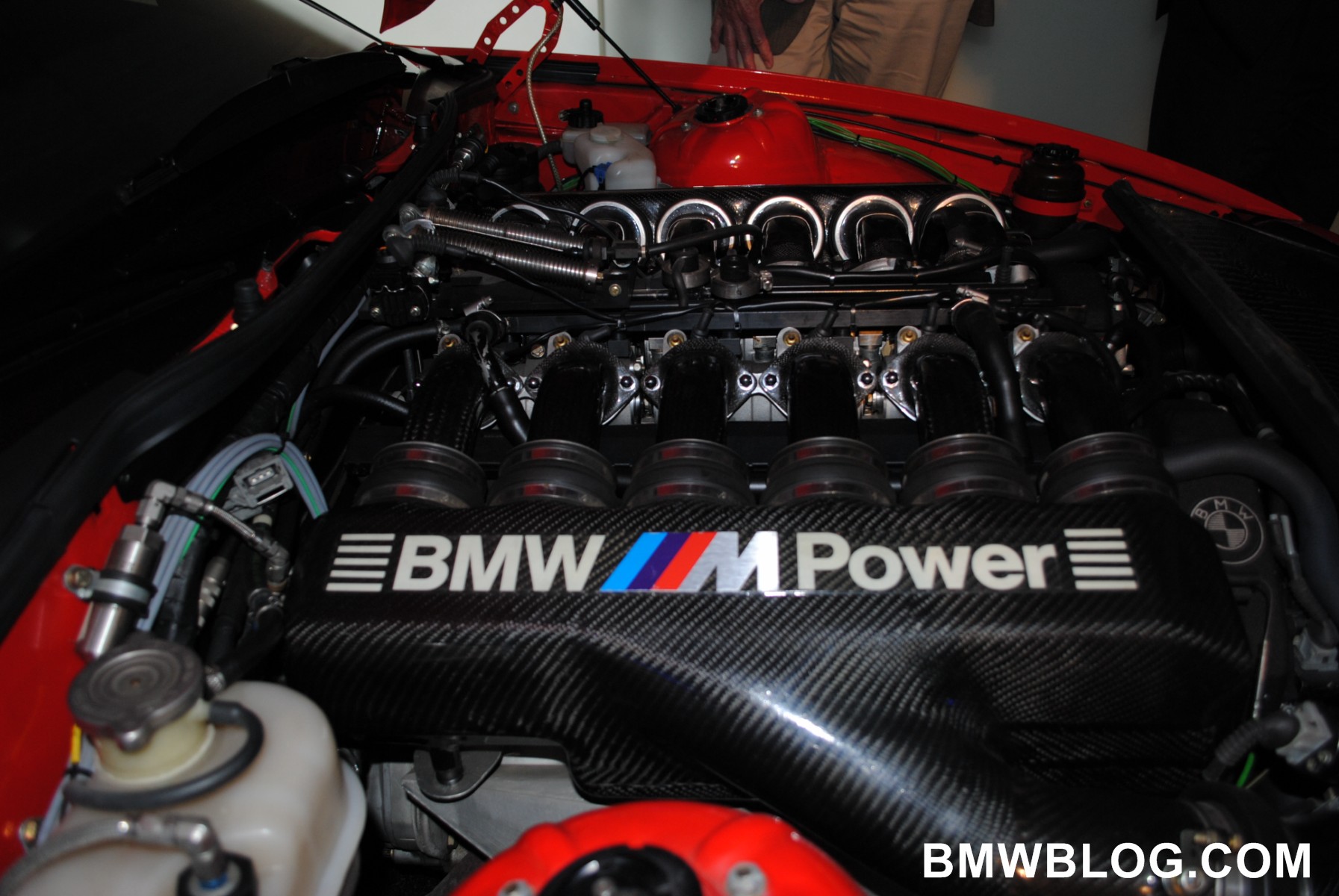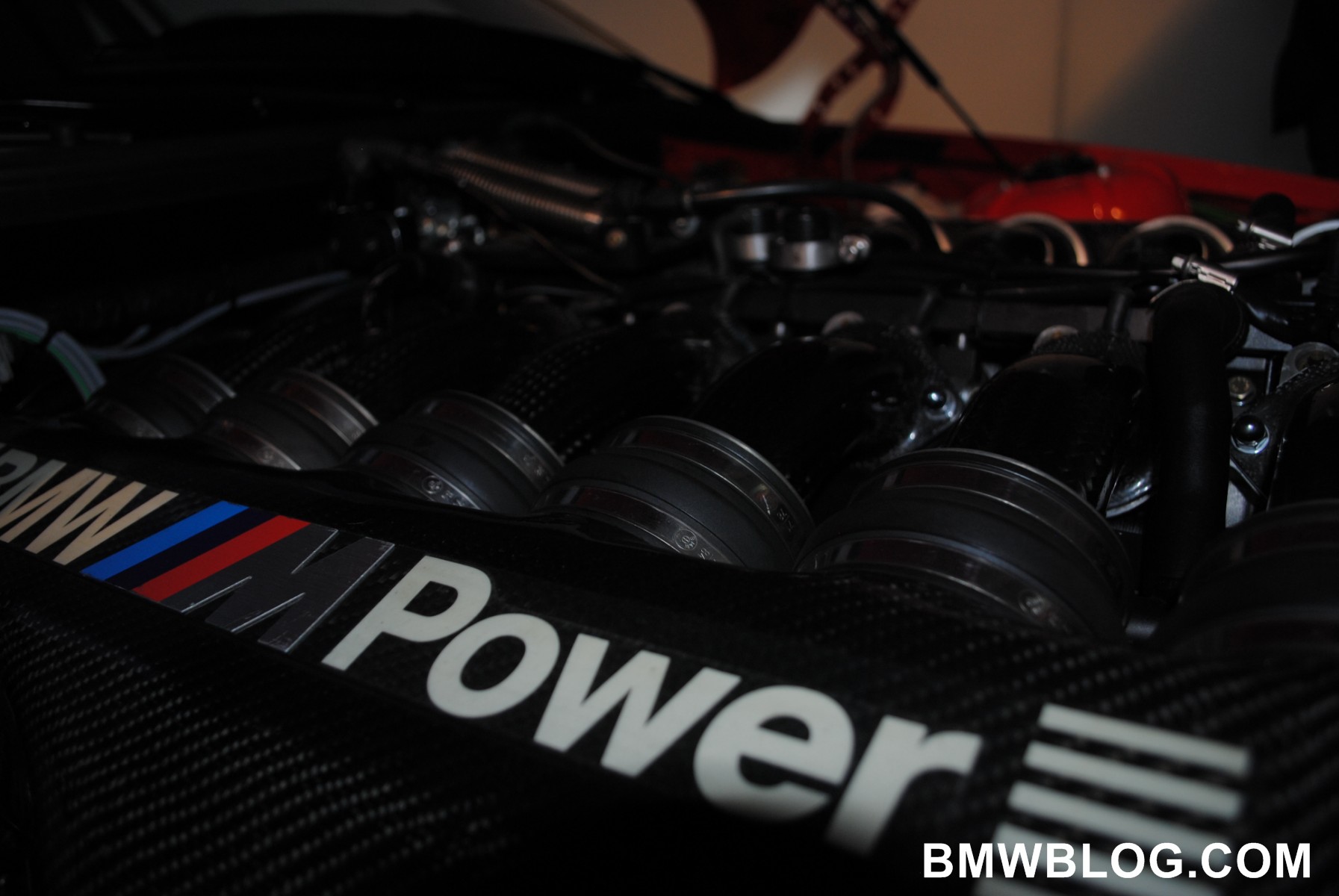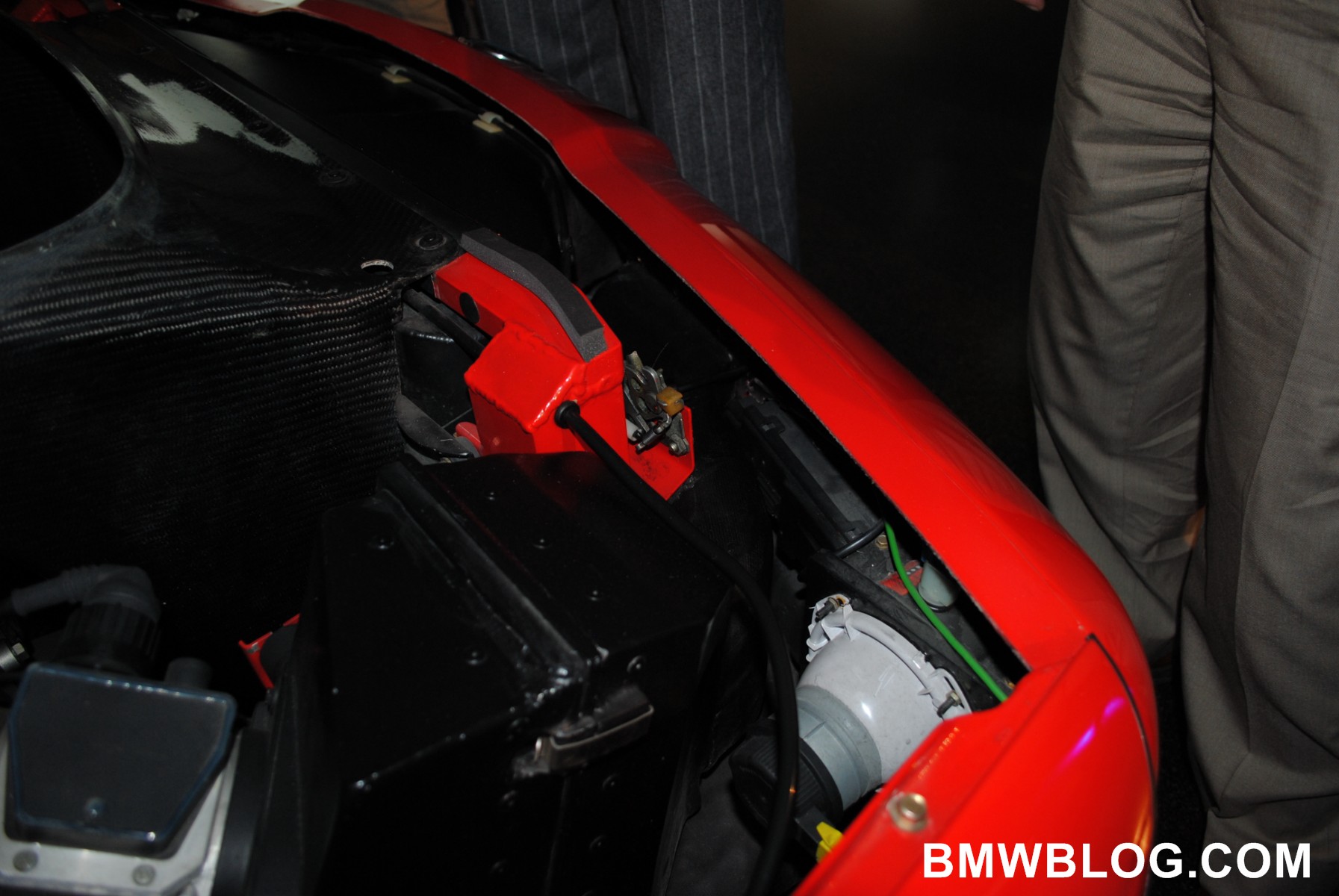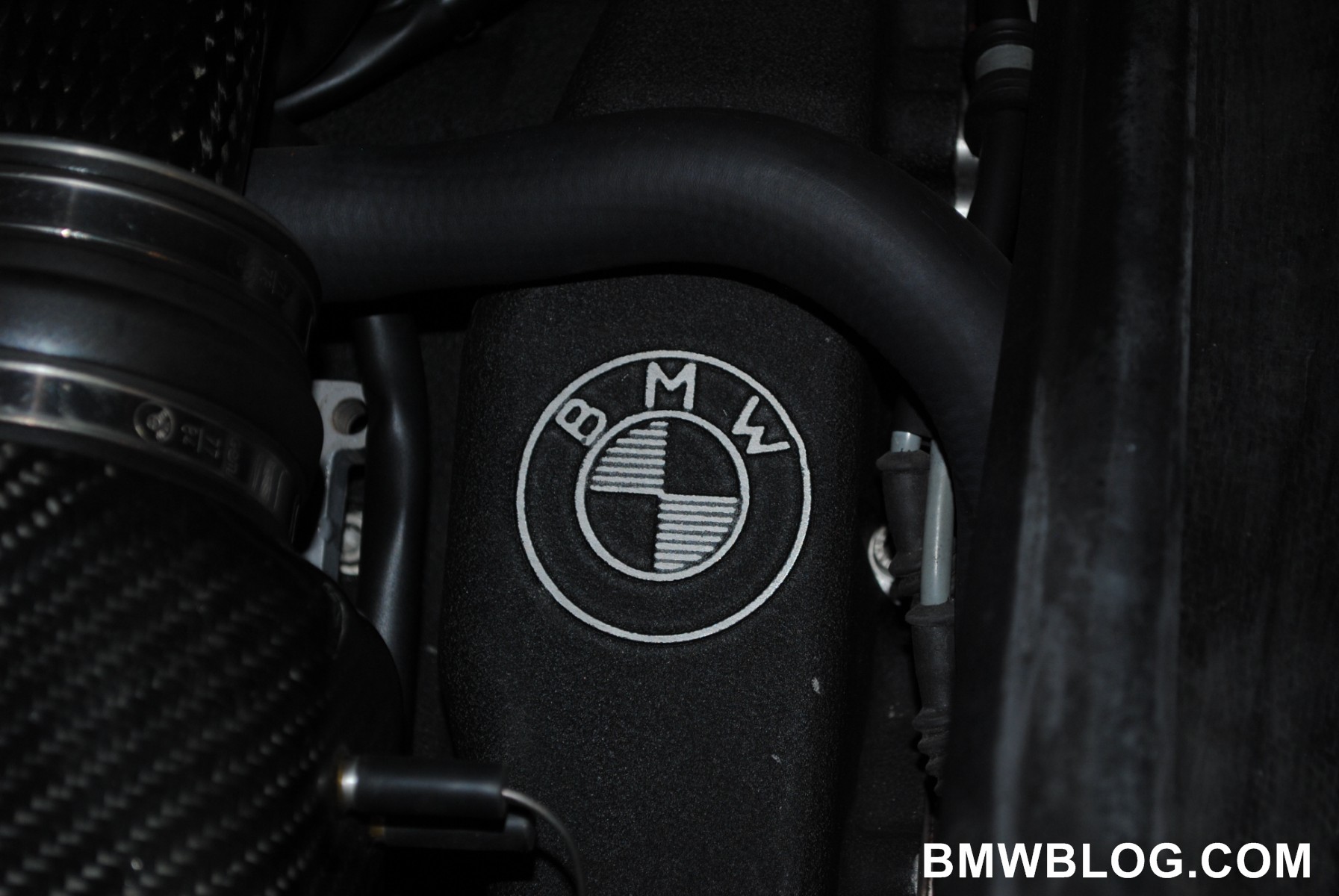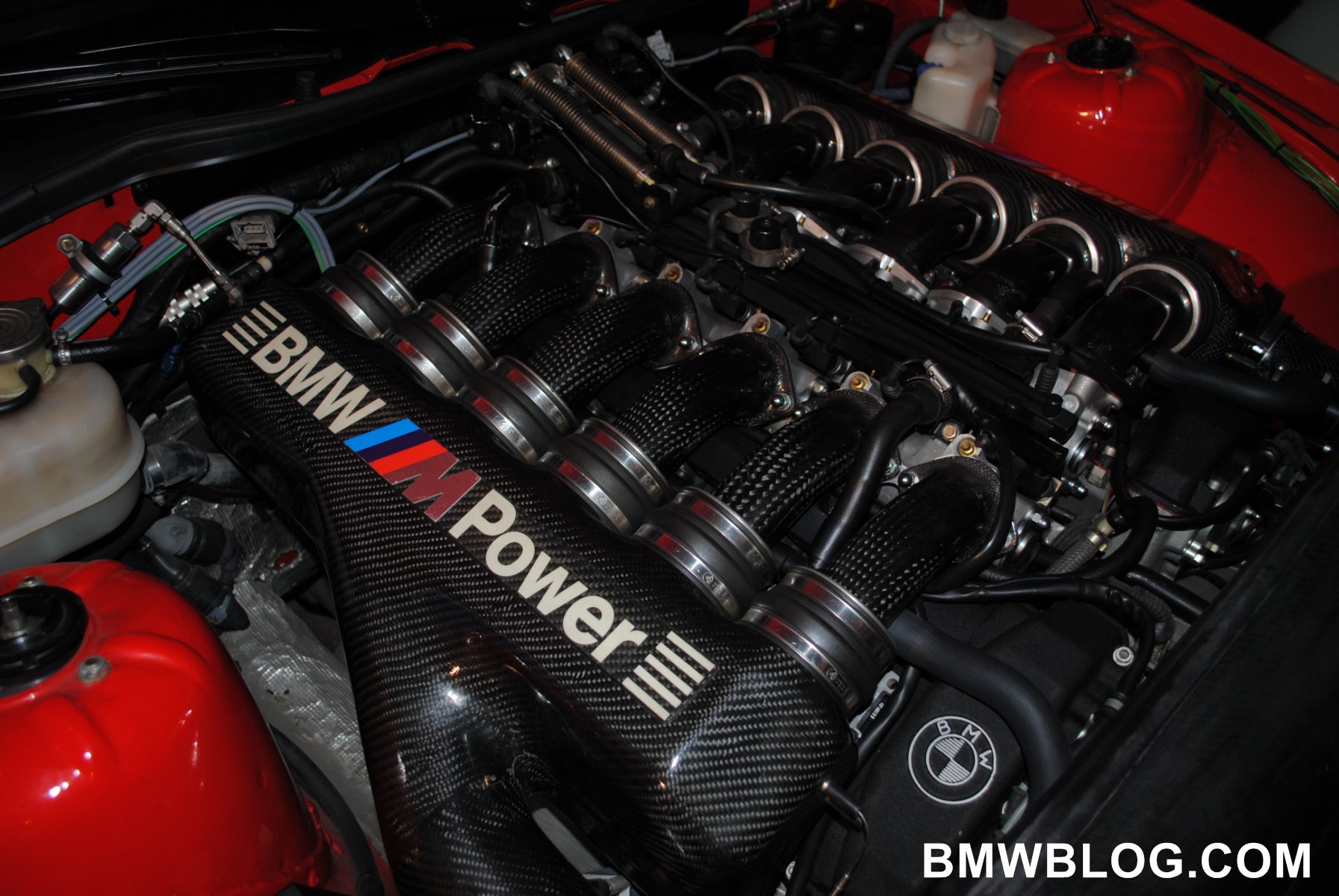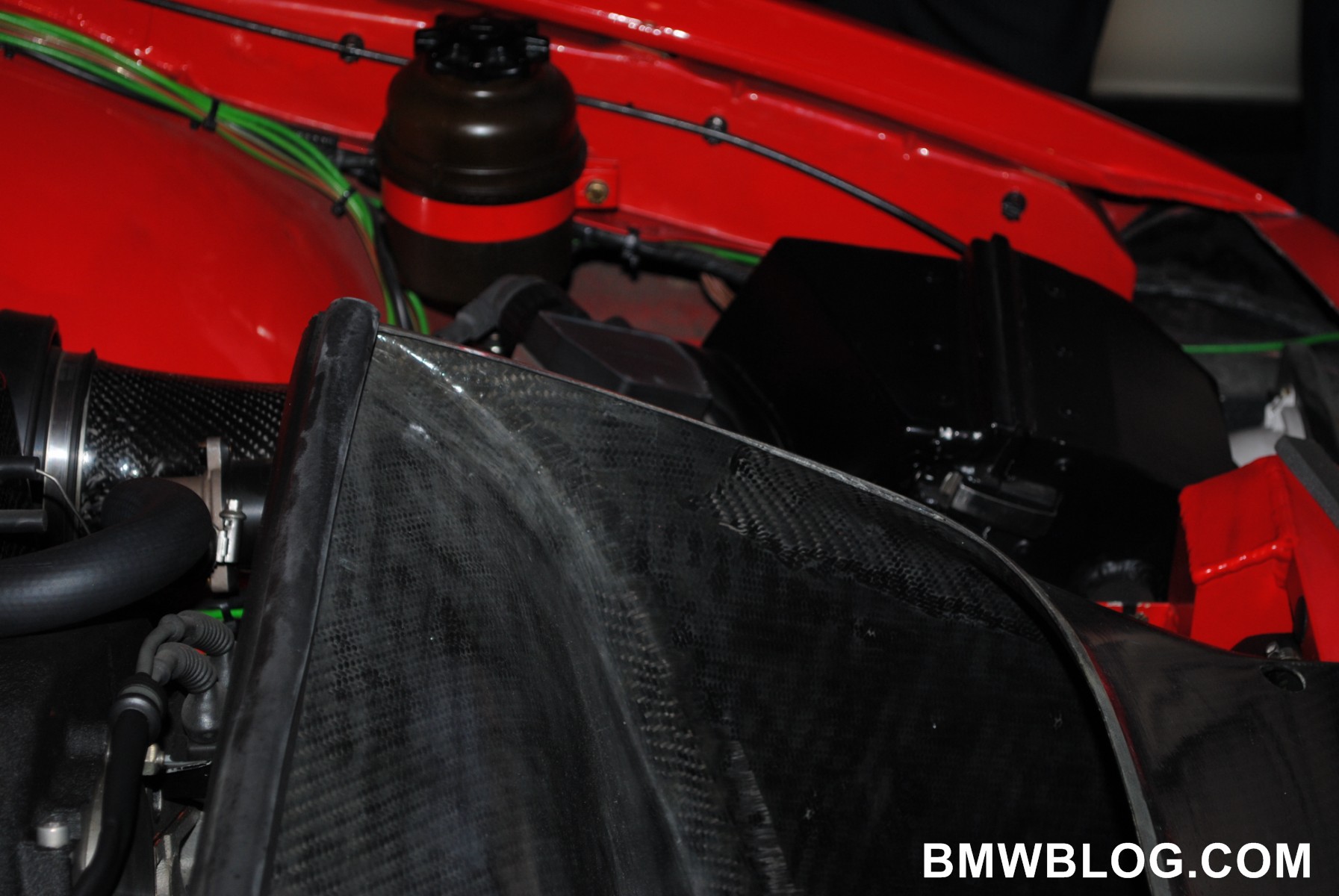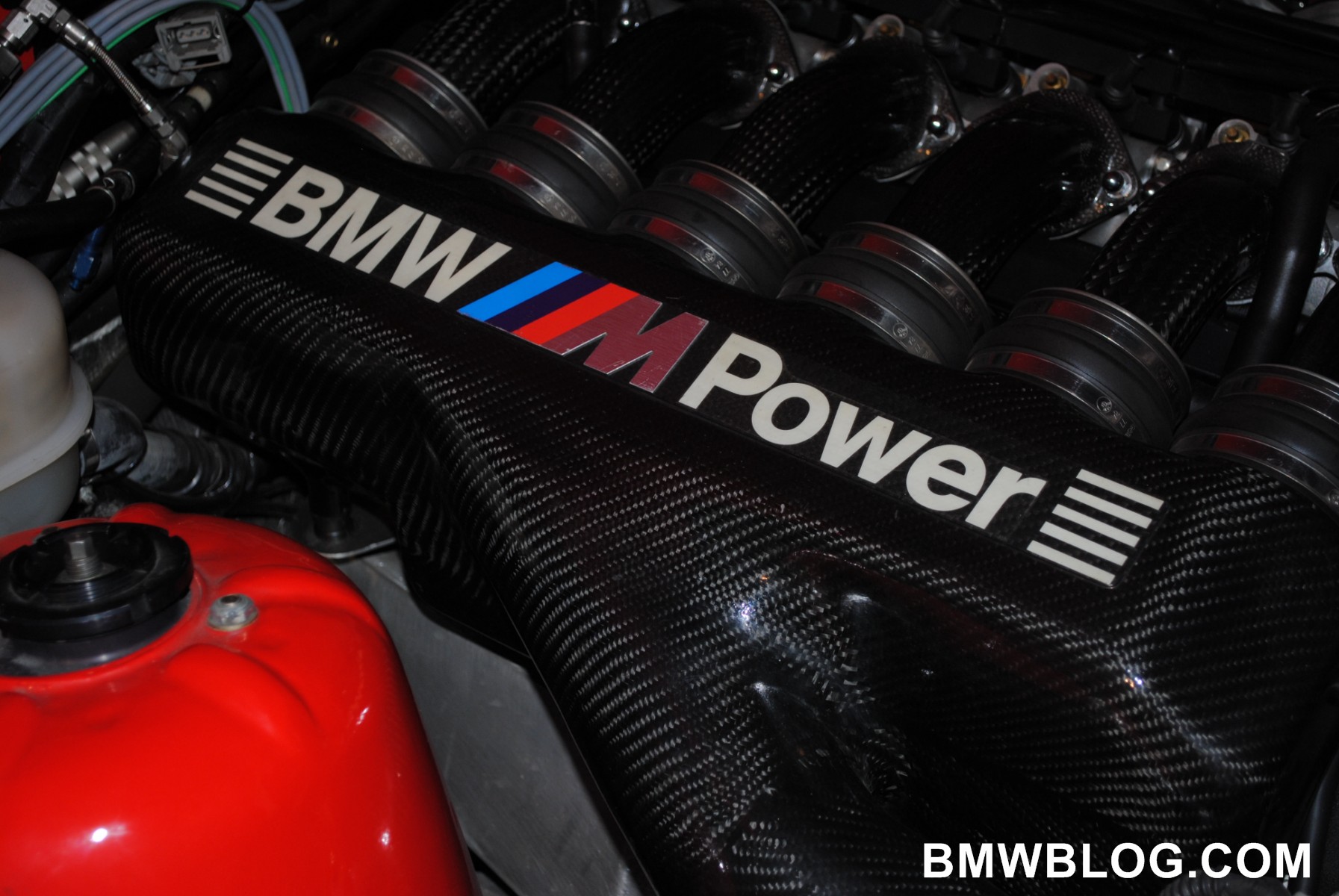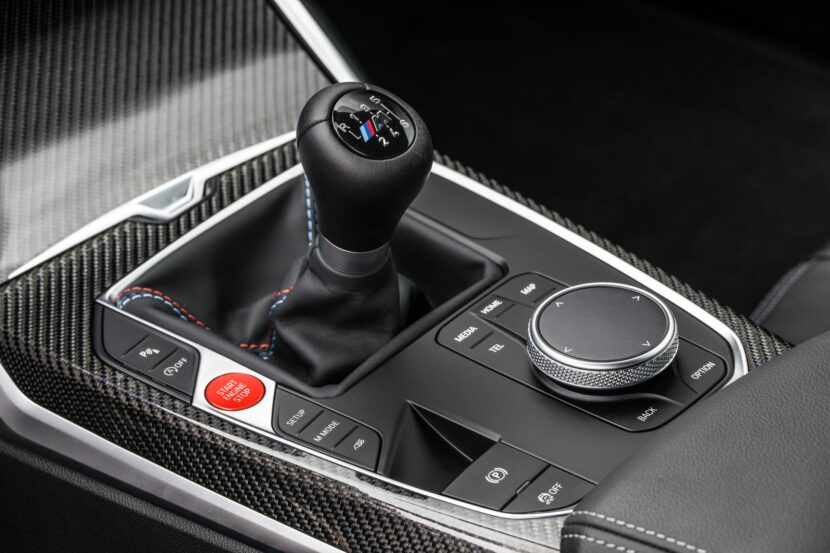It’s the early 1990’s, you’re a German executive working for BMW in the incredible 4-Cylinder tower in downtown Munich. Not far from you, a certain, important bright red prototype is sitting, waiting for a decision to be made – a simple yes or no as to if the car will make the leap to a production series car.
On the one hand, you’re a car enthusiast, someone who would love to green light a 500+HP grand tourer with a six speed manual, rear-wheel-drive and acres of leather to cover up the inner workings and systems of the most technically advanced road car your company has ever built.
Then there is the business side of you – the side that is more calculated and looks at the business case of such a vehicle and evaluates the pro’s and cons in a cold, harsh light with other variables surrounding this decision. The German economy has been rattled from a recent worldwide recession. The prototype in question, along with the base car on which it was built, has already cost millions upon millions of deutschmarks and the base model series has received a only lukewarm reception from your biggest market, the United States.
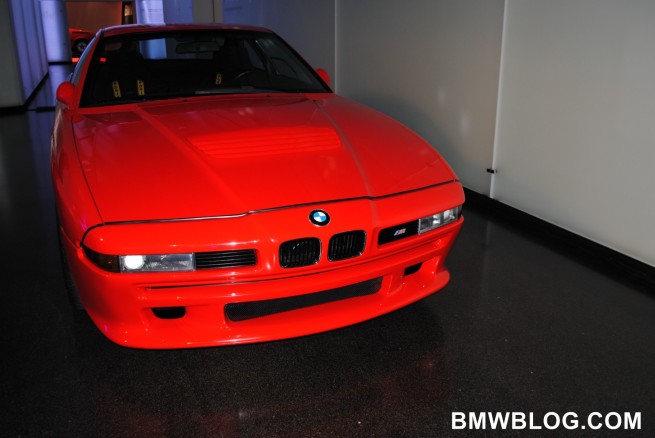 This despite the model being both in-line with the luxurious and sporting brand image and delivering a suitable blow to fellow German rivals. However, a flagship, expensive sports car with flat sales and rising manufacturing labor costs during a recession?
This despite the model being both in-line with the luxurious and sporting brand image and delivering a suitable blow to fellow German rivals. However, a flagship, expensive sports car with flat sales and rising manufacturing labor costs during a recession?
No – it won’t be built – this car will not make it beyond the prototype stage.
With that, the M8 Prototype would be boxed up and tucked away for another 12 to 15 years – out of the public eye and a major piece of speculation for BMW enthusiasts around the globe for the next decade and a half.
With this decision the most powerful production BMW until the X5/6 M was relinquished to a life of ease in a complex housing other prototypes and projects that didn’t quite make it to the assembly line.
However, mystery and rumors circulated around the M8 Prototype and whether or not it ever existed and, if it did, had BMW disassembled the big 8 like it does so many test mules and prototypes? The only proof available for almost two decades were rumors of output and a handful of grainy photos showing a heavily modified 850i with a revised air dam, power bulge hood, and some specialized ducts to channel air. Aside from that, publically there was no evidence that the M8 had existed and as time marched on many enthusiasts found themselves enthralled by the idea of such a car that never made it to market despite a substantial leap forward in performance over all of the existing BMW’s of the time. For reference, the 850CSi which was a detuned M8 of sorts and carried both M-derived engine codes and VINs had to make due with only 380HP – a mind blowing 170HP less than the rumored 550HP churned out by the M8 Prototype.
Speculation of what the M8 was and what it could have been capable of grew even more with the inception of the internet and car forums. Many thought it was a fully functional model, many thought it had been destroyed and many thought it was alive and kicking but roughly a shell of an 8 Series with non-functioning headlamps, air conditioning and many onboard systems.
After nearly 20 years, BMWBlLOG’s founder and head honcho Horatiu, managed to finally see the red devil in the flesh during a press conference a few months ago when BMW nonchalantly displayed the M8 in Munich for a handful of other, more pressing projects of the company. Upon further inspection Horatiu found the M8 to be a working prototype of a car that had managed to live in the shadows of the 4-Cylinder tower and in hearts of so many BMW enthusiasts for decades.
With such an incredible revelation – more information had to be sought out. From what was learned about the M8 Prototype( as the car is officially/unofficially titled as it is not a “concept” but a working mock-up of a car nearly set for production) was that – had this car managed to reach green light status, its sheer performance on every front would have been staggering against any existing peers it may have had.
Regarding the engine, a big V12 (likely larger than 5.0L of the 850/850CSi) is nestled under the bulging hood. The engine carries with it 12 individual throttle bodies connected to the driver’s right foot via direct cable making the M8 Prototype the only non-drive-by-wire 8 Series in existence and proof of M GmbH’s dedication to providing a tactile driving experience. Interestingly, one of the biggest misconceptions of the M8 is that it shares an engine with the record shattering McLaren F1 as it was around the same time as the development of the M8 that McLaren commissioned BMW to build a very power V12 to power their supercar – after being denied by Honda.
Per our sources, the McLaren V12 (a modified S70) and the M8’s V12 were likely constructed by many of the same engineers hence a similar design and output but differed in areas such as overall length due to the horizontal intakes for a front engine layout if the 8 compared to the vertical intakes of a mid-engined car. The McLaren engine, from a design standpoint, shared quite a lot of characteristics and parts with the S50 engine of the E36 M3.
Moving to the glowing red-hot exterior, the M8 Prototype distances itself further still from fellow 8’s with styling that meshes the sleek coupe lines with purposeful yet necessary upgrades. At the wedge-shaped, near E26 M1 nose, a revised front fascia allowed for better channeling of air into the massive intakes to feed the engine.
Sitting just forward of the engine is another enlarged airbox again helping to feed the swollen V12 to send 500+ HP to the rear wheels via 6-speed manual gearbox. Other revisions at the nose are lightweight pop-up headlamps, modified to both reduce weight and accommodate the lack of fog lamps – sacrificed for the great good of airflow along the lower front valence.
Gliding down the flanks of the prototype the coupe carries the same wide hips of the 850CSI with a widebody kit modified to accommodate better cooling of the brakes and it’s believed to also used to channel air as a means of cooling the rear differential. Wedged underneath the flared wheel arches are 17 inch M Systems wheels with a carbon fiber overlay. While we don’t have exact figures, the rear wheels are quite wide to keep the big coupe planted in the twisties – our sources indicate that the tires are Michelin PilotSports of the period.
Speaking of carbon fiber – that brings us to the body of the M8 Prototype. Weight savings in sports cars is very commonplace these days but in the early 1990’s, only cars like the Ferrari F40 or F50 or even Porsche 959 extensively used weight savings materials throughout the body to maximize performance. Specific body panels such as the doors, arches, and ducts are constructed from carbon fiber reinforced-polymer(CFRP) which are lighter than the standard components on the E31.
Additionally, the Prototype carries lightweight Plexiglas window frames which, per BMW, bear heavily resemblance to the current E92 M3 GT’s same window frames. BMW even made the hood, with a large intake front-and-center of the engine bay out of CFRP. They even went to the trouble of installing specialized headlamps, lighter than the stock E31 headlamps, with revised functions to let the flash-to-pass headlamps act as the primary lighting. The effect of these revised headlamps is two fold: to lighten the lamps as well as provide extra room for the massive air filter boxes sitting just below the hood. Again, the design of the car is focused on performance as priority number one.
Moving to the interior of the Prototype there a several notable changes over the standard E31. The biggest divergence is the addition of the B pillar on the Prototype – something noticeably absent from the cleaner lines of the other 8 Series’ cars. As would be expected, the B pillar (along with framed doors) was a necessary addition as a means of injecting further rigidity into the big coupe to combat the natural trend of a coupe’s body to flex under heavy load.
Other interior upgrades include heavily bolstered seating to keep occupants in place as well as reduce weight through racing seats. BMW went as far as to outfit the entire cabin in suede to keep interior grip levels high. Some of the instrument cluster was modified with two VDO-manufactured pressure gauges along with a manual climate adjustments panel added to the dash.
From our pictures and onsite reports, BMW also outfitted the interior with heavy-duty set of seat belts/harnesses to further ensure that the driver doesn’t budge one centimeter from the wheel – keeping the sole focus on the driving experience.
With all of these considerations – it’s easy to say the M8 was possibly the great M car never sold.
The car was trimmed down on par with the E46 CSL, the engine was tuned to a point that it would only find rivals in its peers nearly two decades later with the X5/6M’s and potentially the F10 M5. The M8 Prototype is a car that represents BMW M at its absolute peak during the early 1990’s – M GmbH, after just a small handful of successes like the E30 M3 and E28 M5. They knew they had another success on their hands but the M8 was to become a victim of timing – a car decades ahead of its time but undeniable in its nature and potential abilities.
It’s a shame that BMW couldn’t find a means in which to bring the M8 to the masses. However, many know it would have probably gone. A global recession and the debut of the most expensive BMW ever constructed would have resulted in dismal sales figures – even for a small production run of uber-exclusive cars. After the fall of residual values and used car values to lower levels, the M8, within a matter of a few short years the M8 would be banished to the life of a garage queen – wheeled out by the anal retentive enthusiast only for the occasional car show or parade lap at a track with the secondary market returning astronomical car prices – not unlike the current state of the BMW M1.
However, what’s good to know is that, despite the ever-present influence of economic trends, BMW continues to work on cars such as the M8 that will push the envelope in terms of technology and performance which will continue to set the bar higher and higher for what M GmbH is capable of. Most important, enthusiasts are still in charge at M GmbH and with that, only good things car happen.
As the M8 Prototype was sprung on us – the video below was shot on an iPhone 4, but hopefully gives you an idea of what the M8 is like in person – in addition to Horatiu’s photos.
(Details and technical information provided by BMW Group)


